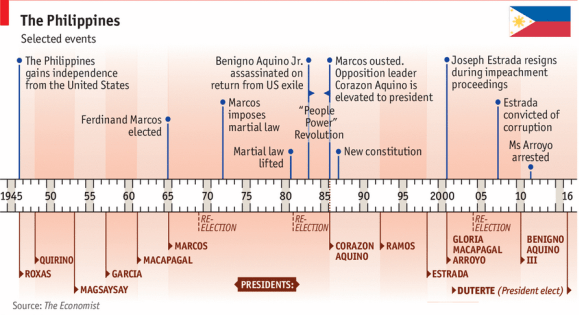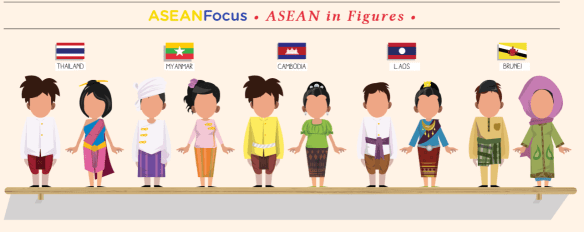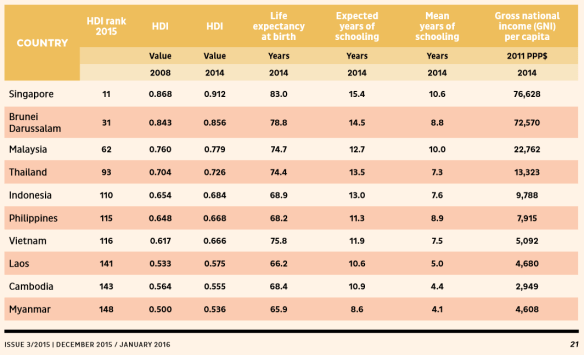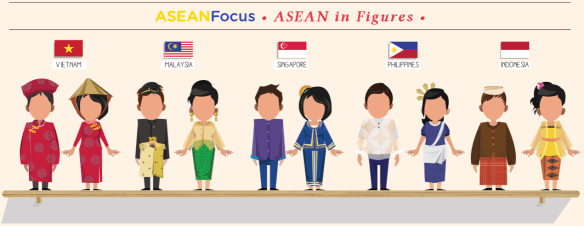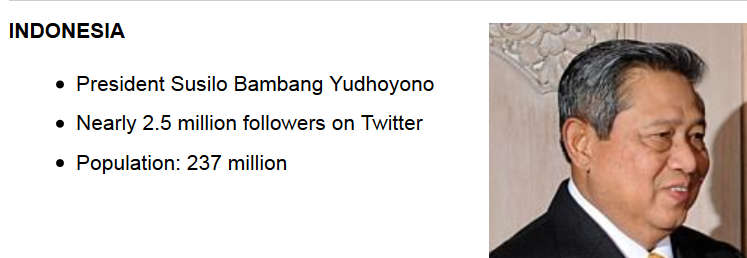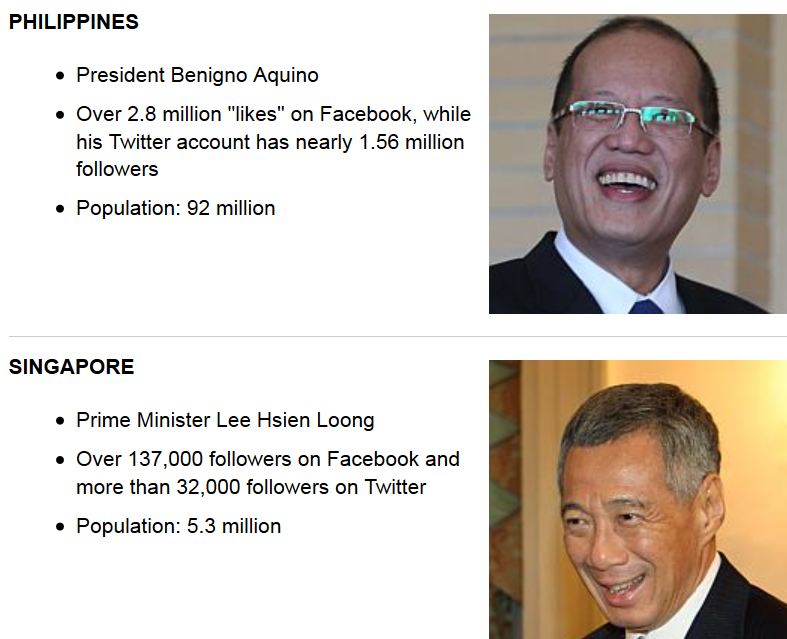Successful and clever parties use any new channel for spreading their message. Singapore’s People’s Action Party (PAP) is one of the most successful political parties in the region and always open to new ways of connecting with the voters. With a new Prime Minister and elections round the corner, recruiting INFLUENCERS from outside the party ranks looks like a clever move.
Tag Archives: southeast asian politics
How to Convince Voters in Confusing Party Landscapes
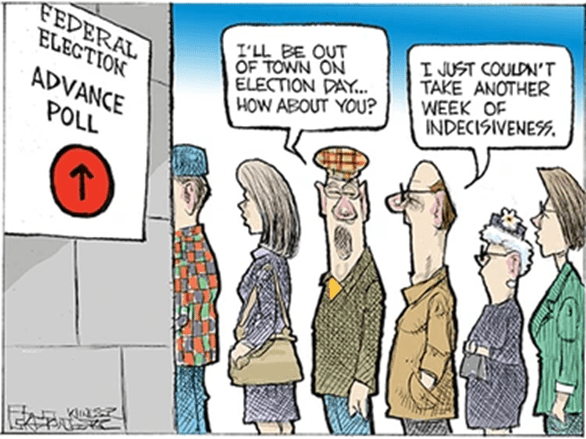
Fragmented Party Systems
In most of the so-called mature democracies the party systems are increasingly fragmented. Britain and the U.S. are an exception, mainly due to the First-Past-The-Post election system in Britain and presumably due to the sky-high campaign costs in the U.S. which discourage the formation and rise of new parties. In Europe the traditional party landscapes, if they are still visible, are falling apart at a fast rate. After WWII, Germany wanted to build a model democracy. One of the results was the ease of establishing and registering a new party, including the right (!) to get a downpayment for campaign cost reimbursement even before an election. So far so fair, but as an unintended result, there were new parties without a realistic potential, even as small coalition partners. In the last Federal Election in 2021 there were parties like “Free Voters” (vote share 2.4%), “The Animal Welfare Party (1.5%), “Pirate Party” (.4%), “Christians for Germany” (.1%), “Vegan Party” (.1%), and many others without votes. The threshold for entering the Bundestag is 5%. Combined with the decline of the old ideological parties, namely Social and Christian Democrats and Liberals, the European party systems show a tendency to splinter and make coalition building increasingly difficult.
Splinter Parties in Southeast Asia
In many countries in Southeast Asia, the party landscapes resemble the European ones in terms of complexity and lack of ideological differentiation. Highly visible, popular, or towering leadership figures may make up for the deficits, at least for a while, sometimes even for decades. But today it is more urgent than ever to convince and win over new voters. Since the era of “safe vote banks” seems to be over, it is even more important for the parties to come up with a convincing program and attractive leaders. But most of all, they should have a strategic concept of how to define the type of voters they can hope to convince. This is why their campaign plans need to focus on who can be convinced and how!
For concepts of “selling points” and “selling techniques” there is more than enough literature available. Voter’s opinions can change and can be changed, even to the opposite conviction if done the right way. Here is a link to the first example of a toolbox:
How Political Opinions Change | Scientific American
“In a recent experiment, we showed it is possible to trick people into changing their political views. In fact, we could get some people to adopt opinions that were directly opposite of their original ones. Our findings imply that we should rethink some of the ways we think about our own attitudes, and how they relate to the currently polarized political climate. When it comes to the actual political attitudes we hold, we are considerably more flexible than we think.” And so are voters…
Power, Status, Succession, and Political Dynasties in Indonesia

Millenia of feudalism have left parts of their legacy until today. As it was normal that princelings were groomed to become kings or sultans, company owners often groom their children as successors. Should it be different in politics? It probably should, because charisma and eloquence paired with intelligence and a sense of chosenness and mission are not necessarily hereditary. However, political dynasties are common, from the Kennedy and Bush clans in the USA, the Gandhi family in India, to the latest well prepared and successful handing over of the Cambodian premiership from Hun Sen to his son Hun Manet.
The Indonesian media headlines last week sounded somewhat skeptical when President Jokowi’s youngest son Kaesang Pangarep, 28, was named as chairman and leader of the Indonesian Solidarity Party (PSI) on 25th September, only a few days after joining. The PSI, founded in 2014, tries to form a counterbalance to the traditional macho and money style politics, eying the young and progressive voter generation, in a way similar to the Move Forward Party in Thailand. It is not yet represented in the national parliament but in several regional and provincial parliaments as well as in the municipal councils of big cities like Surabaya and Bandung. The party is sort of revolutionary with its 45 per cent of female candidates and the transparent way of publicly selecting the candidates.
One interesting feature which has come up in Indonesia’s democratic development is the focus on eligibility in the selection of candidates. It has the disadvantage of giving attractive candidates a choice between different parties and their financial possibilities – or a rich candidate “buying” a poor party as a vehicle for his ambition. But the focus on eligibility is a feature which many European parties should keep in mind as well. Their candidates for party posts and parliamentary elections are too often making their way up through the ranks from the bottom. This needs elbows, ambitions and years of patience, compromises, and back-door deals, which in many cases does not produce candidates sufficiently attractive for the voters.
For the Indonesian party scene, the lightning career of Kaesang Pangarep makes sense. As the president’s son he is highly visible and known to the broader public which will be useful for the PSI in the upcoming elections next year.
With Kaesang’s career move, the Widodo family’s political life after the president’s second term does not end in 2024. Jokowi’s elder son Gibran Rakabuming Raka is already the mayor of Surakarta, and Bobby Nasution, his son in law, is mayor of Medan. Both are on a PDI-P ticket and the PSI-move for Kaesang has been interpreted as a rift between President Widodo and PDI-P chair Megawati, his sponsor.
Back to the addictive attraction of power and high office. Both are addictive in terms of status and self-importance, sometimes with access to funding on top. Giving up the presidency of big countries like Indonesia, but any smaller office as well, may create a sort of phantom pain, the loss of something the holder is used to and eventually feels entitled to. When Winston Churchill was no longer prime minister, a reporter asked him what he missed most. With grim humour Churchill answered in one word: “Transportation…”
Can (Young) Voters be Trusted?

GE 15, the 15th Malaysian general election on 19th November 2022, has been analyzed in many ways. Probably the most commented elements of its outcome were the appointment of veteran politician Anwar Ibrahim (74) as Prime Minister and the decline of the Barisan Nasional, the vehicle for decades of UMNO’s dominance. What is coming up with some delay is the much-anticipated impact of a change to the constitution. In July 2019, the Parliament had enacted the Constitution (Amendment) Act 2019, which contained provisions to lower the voting age to 18 and allow for the automatic registration of voters. The inclusion of young voters was a success story of the advocacy group Undi18, which was born as a student movement in 2016 and started to officially lobby for its cause with a memorandum to then Prime Minister Najib Razak in April 2017.
Since the constitutional amendment, and especially in and long before the official election campaign, politicians and commentators were speculating about possible changes by the enlarged and much younger electorate. Indeed, with the similarly new automatic registration the number of voters increased to 21.1 million, and the reduced age limit added 1.4 million young and first-time voters, with a total of 6.9 million potential new voters. There was a clear expectation that the role of young and younger voters below 40 would be pivotal. All post-mortem election analyses, as usual, depend very much on the party affiliation or programmatic and ideological preference of the analysts. Losing parties tend to believe that those who have given their vote to other parties are ungrateful, mistaken, uninformed, or outright stupid. And even if a party has won because of the lack of alternatives, their top dogs will attribute the success to their own convincing leadership and their farsighted programs for the glorious future of the country.
Concerning the real voting patterns of the youngsters, some research results have come up in the meantime. Hisomuddin Bakar, director of Ilham Centre, a market research company in Kuala Lumpur, found that almost 90 per cent were unaware of current political developments, that some were unable to differentiate between MPs and assemblymen, or even recognise existing political parties. According to his research results, most of them followed family traditions or relied on social media as main source of political information. But the encouraging result of the Ilham survey is the assumption that around 80 percent of the first-time voters exercised their right to vote. That is a fabulous increase from the Johor state election in March, when the turnout of young voters was only five per cent.
Interestingly, Hisomuddin adds to his critical assessment that young voters are slightly more politically literate than older generations, as they can access information online. The influence of the social media consumption, Hisomuddin says, can be seen in the success of the Perikatan Nasional (PN) coalition among young voters. PN had used social media in its campaigning, including narrative content on TikTok. But in a regional comparison, Malaysia seems to be behind the Philippines, where the landslide victory of President Marcos in May was prepared by an army of trolls in the social media. Candidates there were all hiring trolls and have created tens of thousands of easy jobs for which you need just a SIM-card and a telephone or a PC and Wi-Fi.
Whatever politicians, parties, and analysts may say about the ideal voter and how first-time voters might qualify to be taken seriously, a comparison must encompass young and old, urban and rural, enlightened or not. For many decades, political scientists are debating how informed the average and the ideal voter should be, whether voting is a rational decision at all or just emotional and following the all-too-common herd instinct in politics. Very important for the outcome is, of course, the current political situation before the election, in the GE15 a mix of complications of utmost impact for the stability and the future of the country. And, not to forget, a political impasse can be such a deterrent that many voters, young or old, don’t bother at all to go and cast their vote. In Europe, where in many countries the non-voters outnumber the leading parties, civic education in schools and comfortable voting by mail are not really boosting the turnout. The so-called mature democracies don’t appear to be more mature in political knowledge and voter decisions. According to figures of the European Commission, visualized by Statista, the turnout of young voters between 18 and 30 varies between 79 per cent in Austria and 35 per cent in Luxemburg. And in the USA, the overall voter turnout notoriously remains below 50 per cent.
For the outcome of GE15 in Malaysia in November, the youth vote was not decisive. The formation of the new ruling coalition under Anwar Ibrahim, according to many analysts, shows much more the moderating influence of the King and his fellow rulers.
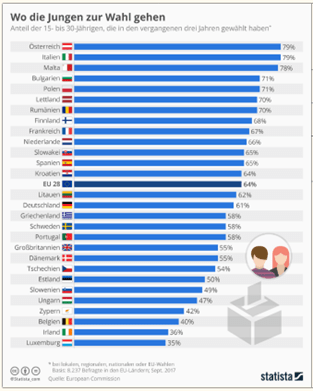
The Marcos Clan: Back to power after 36 years
An electoral triumph with a professional social media campaign
For the late dictator’s wife, Imelda Marcos (92), her eldest son, Ferdinand Marcos Jr., the new president of the Philippines, is close to a reincarnation of her husband. In an interview in 1991, when she and her children were allowed to come back to Manila from their exile in Hawaii, she said: “He sounds like his father. I listen to Bongbong, it’s eerie. Like Ferdinand was there. Even in his mannerisms. His voice. His movements. His hand movements. When he walks. I surely feel Ferdinand the First was born again in Ferdinand the Second.” (Asia Times)
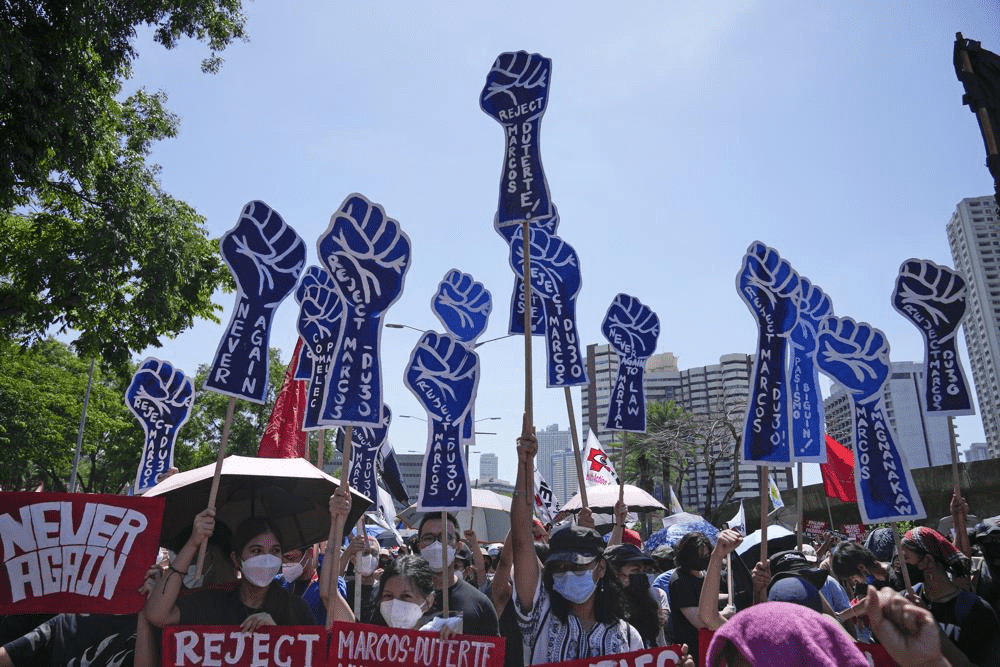
For the generation of Philippinos which ousted Marcos the First in 1986, the feelings of Imelda might be very similar or even the same, only negative and bitter. After the triumph of the people power movement and the widespread euphoria for freedom and democracy, the return to power of the Marcos clan and the resounding victory of Ferdinand the Second, nicknamed Bongbong, must be more than disappointing. Already disappointed with the last few presidents, they fear the worst for the struggling democracy. The triumph with 31 million votes, more than double of challenger Leni Robredo, the outgoing vice-president, was not a surprise, though, because the pollsters were quite accurate this time and had predicted the victory long before election day. There are as usual, allegations of election irregularities but in terms of organisation, counting, and transmission of the local results to Manila, which were outsourced to a private logistics company, the election commission (COMELEC) fares better than the regional average, especially in view of the difficult geography of the archipelago and the social conditions of the poor parts of the population. However, what happens on the ground in constituencies dominated by political families and their influence on “their” voters is a different story. Families and family clans dominate the political scene in many ways, in the regions often enough with private armies, and on the national level with money. Many of the billions plundered by the new president’s late father are still at large, and the protection of these treasures, according to many commentators, will be a central task of Ferdinand the Second in the coming six years. But the extended clan is in a good position. Apart from Ferdinand, eight of his relatives, six Marcoses and two Romualdez, the Imelda clan, have been elected to different positions, while his sister Imee is already a senator. And the cooperation with the clan of outgoing president Duterte, via the latter’s daughter, vice-president elect Sara Duterte-Carpio, is as useful for Marcos as it reflects the importance of family ties and clan structures in the country’s politics.
Bongbong Marcos has been nominated by the Partido Federal ng Pilipinas (PFP or Federal Party of the Philippines), one of the younger political parties in the country. Founded in 2018 by supporters of President Duterte, its membership is supposed to be around 1.5 million. As in most countries in the region, the membership of political parties is rather informal in the Philippines, it comes without or with only nominal membership fees and obligations. Do parliamentary or presidential candidates need a political party? That is probably the wrong question, because in all too many situations it works the other way round. The party needs attractive and electable candidates, especially those with deep pockets, and for this crucial quality Ferdinand Bongbong was the ideal candidate. The Marcos family is still being hounded by pending court cases, including outstanding estate taxes, a corruption conviction of mother Imelda, pending on appeal since 2018, and the compensation claims of thousands of victims of the atrocities under martial law during the rule of Ferdinand the First. His son had more than enough money to invest in a sophisticated campaign in the social networks, effectively targeting the younger generations who have no memory of the Marcos dictatorship. With the help of hired influencers and lots of false information the Marcos campaign came up with effective counter-narrative for any accusation and convinced a majority that the son has nothing to do with the sins of his father. One survey found that 72% of voters between 18 and 24 have supported Marcos. But apart from jobs and price control, the main election promise, to unify the country, seems a lot more illusive than realistic. The economic and social fault lines in the country would be a challenge which few would expect the new president to overcome.

Faithful, Forgetful, Forgiving? The Voter Enigma in Malaysia and the Philippines
If you ask politicians to assess the voters, the answers, of course, depend on whether they lose or win an election. And the losers, of course, may use much more negative labels for the voters who did not appreciate their promises and their selfless work for the country. That is universal in competitive electoral systems. Aggravating the problem are two widespread developments over the last few decades, the lackluster results of polling agencies in assessing the real strength of parties and predicting election outcomes, and the confusingly growing numbers of competing parties, even in first-past-the-post systems.
Two events in Southeast Asia, a by-election in Malaysia’s Johor state on 12 March and the upcoming presidential election in the Philippines on 9 May, are interesting case studies and may be good illustrations for the often fickle and probably contagious mood changes in the electorate.
The Malaysian case is a remarkable example for at least two phenomena. One is the survival instinct of a political party after losing power, the United Malays National Organization (UMNO), and the other is that an ousted political leader, former Prime Minister Najib Razak, can politically survive and attract voter support even after being convicted of corruption.
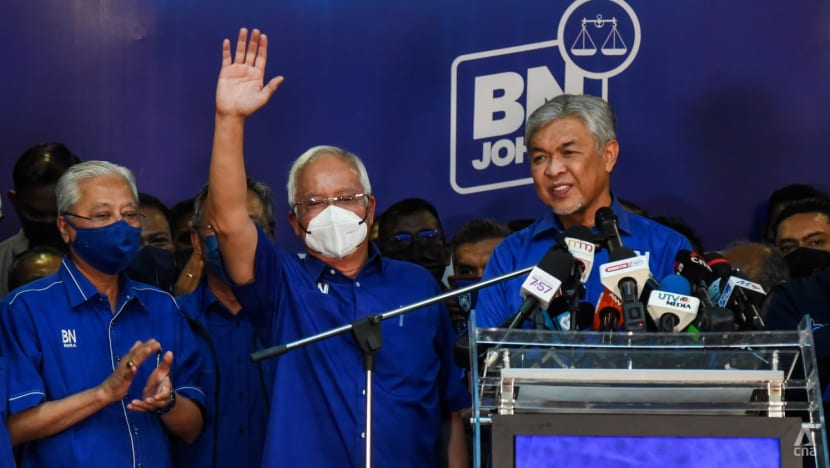
UMNO had been continuously in power from 1957 till its surprise defeat in the 2018 general election. With an impressive organizational machinery, as the champion for the rights and privileges of the Malay majority, some tricky gerrymandering in its rural vote banks with predominantly Malay voters, and with a close grip on the state coffers, UMNO was the epitome of a dominant party. This collapsed in 2018 with a financial scandal of epic dimensions when the 1MDB sovereign wealth fund collapsed like a house of cards after billions of dollars had disappeared, substantial parts of them in the private accounts of party chief and Prime Minister Najib Razak. In 2020, he was convicted to a jail term of 12 years but is still out on bail pending his appeal. While most people thought that his political career had ended, Najib has managed in the meantime to work tirelessly for his comeback. And the comeback, as some observers have noted, might help him to defang the pending lawsuits and save him from prison.
His party, UMNO, traditionally based on extensive networks oiled with money even long before the 1MDB scandal, did not waste much time licking its wounds. It managed to overcome the divisions of leadership infighting after the shock defeat, eventually join the ruling government coalition, and, in August 2021, even install their vice-president Ismail as Prime Minister. The upbeat mood of UMNO is based on two triumphant state election wins, end of 2021 in Malacca and just recently in Johor. In both campaigns, convicted former PM Najib was most actively involved and pulling huge crowds. This seems to prove that his support on the ground is surviving despite the odds of the financial scandal and the negative image created by revelations about his and his wife’s extravagant lifestyle with lavish spending on property and luxury paraphernalia. As Dr Serena Rahman from the Yusof Ishak Institute of Southeast Asian Studies explains at Channelnewsasia (Link):
“Najib Razak has successfully reinvented himself”.
The variations in assessing the voters of UMNO and Najib are easy to guess. They range from faithful, reliable, and intelligent in the UMNO camp to all imaginable negative connotations among the losers. Now UMNO, no surprise, is urging the Prime Minister and the cabinet to plan for snap elections at the earliest convenience. It may bring UMNO and the associated minor parties back from the paper thin and precarious balance in parliament back to a comfortable majority.
The Filipino Case is similar in a way but rather different. When the world was observing how a popular movement, dubbed the Edsa-Revolution, was toppling the country’s long term dictator Ferdinand Marcos in 1986, nobody could imagine that his son, Ferdinand Marcos Junior, could ever run for President after the clan fled to Hawaii. The estimated 5-10 billion $ which Marcos and his wife Imelda had pilfered, and of most of which the whereabouts are still unknown today, seemed to make a return to power of the family unthinkable. In the widespread narrative of the Third Wave of Democratization of the era, the revolution was interpreted as the irrevocable triumph of democracy in a predominantly authoritarian Southeast Asian region.
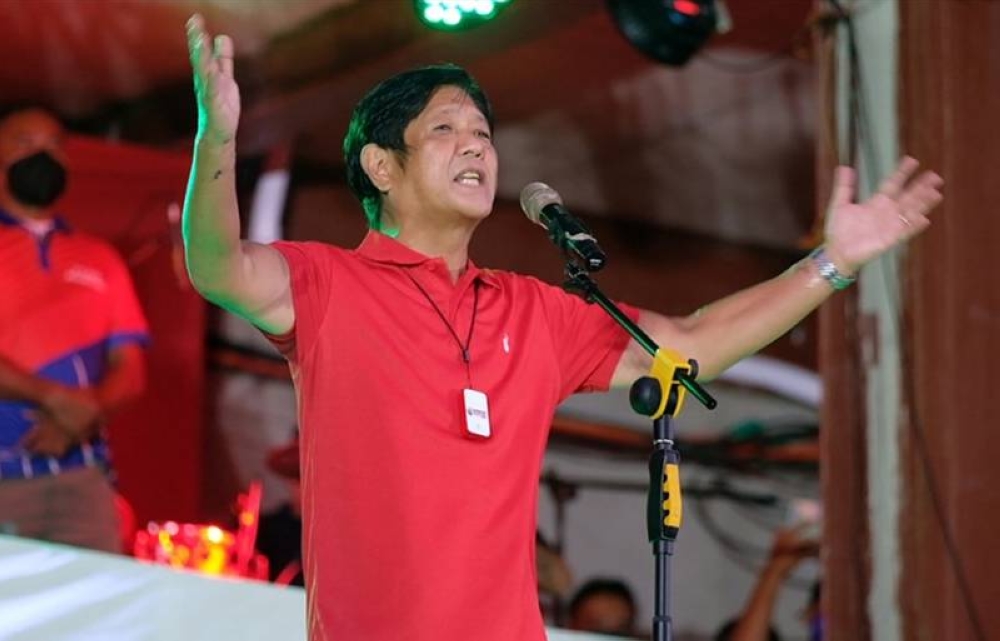
Enough voters remained loyal to the Marcos clan, though, when they returned during the 1990s. Ferdinand Marcos Jr., nicknamed Bongbong, was elected as a member of Parliament (2007-2010), succeeded by his mother Imelda (2010-2019), and as a Senator (2010-2016). In 2016, he narrowly lost the vice-presidential race against Leni Robredo who is now running for President. Bongbong may be her nemesis this time, because his running mate as vice-president is the popular daughter of the outgoing President, Sara Duterte-Carpio. In practically all opinion polls the Marcos-Duterte team is far ahead of Leni Robredo (60% for Marcos and 15% for Robredo), heading for a landslide victory – unless Bongbong is disqualified. Though his father died in 1989, the inheritance is not yet settled and the taxes due on the father’s estate are said to be piling up to stunning amounts. Bongbong calls that fake news, and his lawyer says that the tax payment has been delayed because of an agreement about the search of the disappeared billions. Petitions to the country’s election commission, COMELEC, to bar Marcos from running because of his tax problems, have been dismissed so far as “not a crime involving moral turpitude” but more petitions are pending. The race may end as a duel between Marcos and Robredo, while the 95 other candidates, among them the popular boxer Manni Pacquaio, won’t have a serious chance. In the Constitution of 1987, the election applies the first-past-the-post system with a simple majority, so the candidate with the highest number of votes wins. The election is more complex than in most other countries because on top of president, vice-president, and senators, there are also local mayors, vice-mayors, and councillors up for grabs. More than half of the population is registered for the election, among them 4.5 million new voters and 1.6 million overseas Filipinos. In the 2016 elections, the COMELEC has managed to organise the logistically difficult geography (7000 islands) with an electronic counting and transmission system better than some much richer countries.
The possible return to office and power of “impossible” political figures like Najib and Bongbong Marcos might seduce outside observers to believe in authoritarian undercurrents in Southeast Asia. They can easily be cured with the shortest list of authoritarian leaders worldwide. The likes of Berlusconi, Orban, Erdogan, Putin, and Trump are everywhere, not to speak of Africa and Latin America.
Southeast Asia’s Biggest Democracy
Partyforumseasia: An excellent and timely analysis by John McBeth
A subversive game of thrones in Indonesia
Politically powerful forces are aligning to push for President Joko Widodo to stay on beyond his 2024 two-term limit By JOHN MCBETH MARCH 7, 2022
JAKARTA – With popular President Joko Widodo staying mostly silent, powerful political figures around him appear to be persisting in their efforts to extend his term beyond scheduled elections in 2024, despite one recent poll showing the majority of Indonesian voters are dead set against it.
A recent poll by Lembaga Survei Indonesia (LSI) saw more than 70% of respondents reject a term extension, yet another signal to the country’s political elite that Indonesians would regard such a move as a significant setback for democracy.
Some critics have gone beyond that, with commentator Endy Bayuni warning that “dangerously subversive” minds were behind the move, which arose as a result of the Covid-19 pandemic setting back a second-term agenda that would have capped Widodo’s legacy.
See the whole article here: https://asiatimes.com/2022/03/a-subversive-game-of-thrones-in-indonesia/
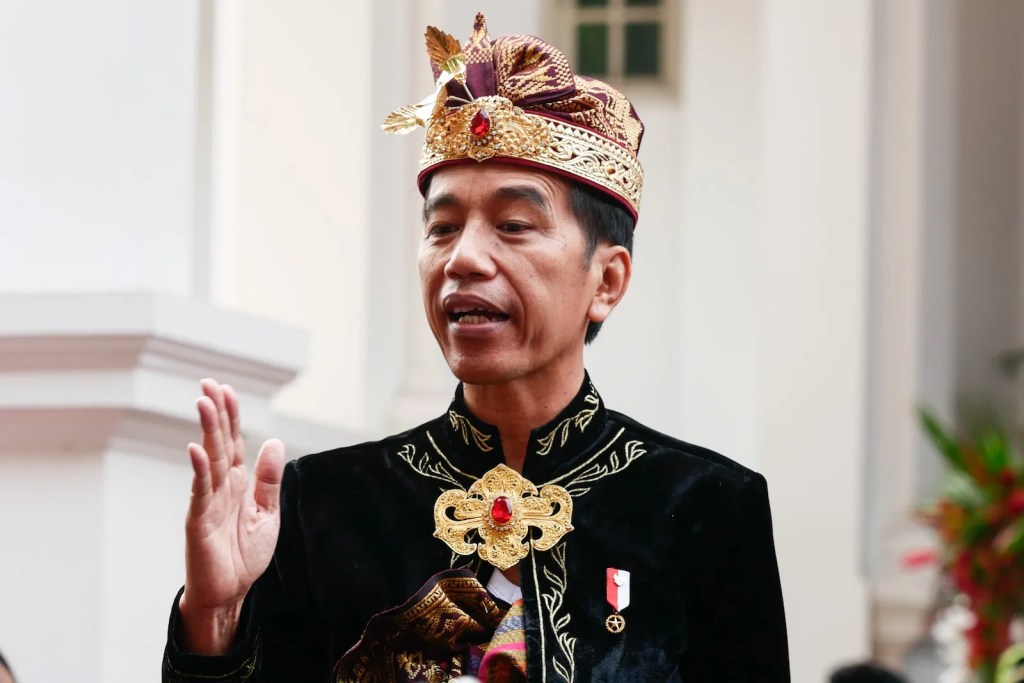
The “Frogs” of Southeast Asia
Partyforumseasia: 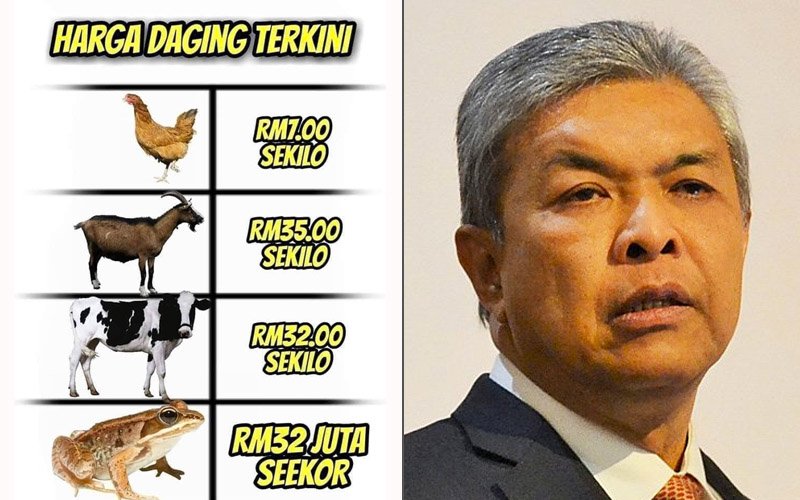
Frogs for 32 million Ringgit Malaysia ( 7.5 m USD or 6.4 m Euros ) ?
Apart from the diminutive of frog, froggy in the English language is an ethnic slur against the French. But frog meat is not only popular in France, it is a delicacy all over Asia. And in Southeast Asia, especially in Malaysia, it is also a widespread name, not a compliment, though, for opportunistic politicians who jump from one political party to the other. Since few parties here have a distinctive program or ideology, this special political flexibility is rather widespread. But it is not that easy to explain it to the voters who suspect that there are financial considerations behind such a move.
The wafer thin parliamentary majority of the Malaysian Prime Minister Muhyiddin Yassin has been questioned from the beginning of his term which in turn encouraged the opponents of his premiership outside and even inside his coalition. The biggest faction of this coalition has been the former long-term ruling party UMNO, the United Malays National Organization, and threats to leave it and thereby force the Prime Minister to step down are going on for a while already. Party president Ahmad Zahid Hamidi thought the time was ripe when he announced the withdrawal of eleven UMNO MPs earlier this week. But the situation remains unclear because his grip on the party discipline looks as shaky as never before, and Muhyiddin managed to convince the King that a confidence vote should be postponed to September. Time enough for many Malaysian observers to allow him to buy over enough members of parliament for the maintenance of his majority.
And here comes a rather interesting and intriguing contribution from a man who probably knows best how to buy over parliamentarians, Zahid Hamidi, the experienced UMNO leader. It is not that much the fact that financial transactions are part of the frogging procedure but the price tag suggested by Zahid. In a Facebook post he describes the per kg price range of different meats in the Malaysian marketplace as follows:
- Chicken 7 RM (Ringgit Malaysia)
- Goat 35 RM
- Beef 32 RM
- Frog 32 million RM
UMNO was for decades a master of money politics where even support for internal leadership positions had to be “facilitated” with cash on hand. Publishing the putative price tag for frog meat this way on Facebook can be seen as a blow to Muhyiddin, but for a man who is facing a long list of corruption charges like Zahid is is quite daring on top.
The Fuzzy Logic in Indonesia’s Politics
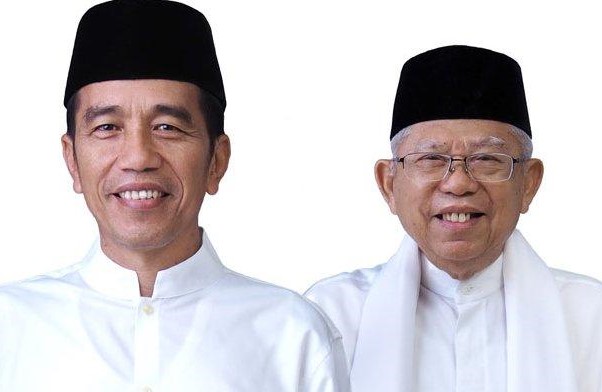
President Joko Widodo and Vice President Ma’ruf Amin
Partyforumseasia: While the Western tradition in politics and logic sees white and black as dominant categories, Indonesia has developed a fascinating way of validating the oscillating variations of changing gray scales, with some white and some black remaining at the margins. That is certainly helpful for the formation of compromises in politics and may prevent differences of opinion to develop too easily into open enmity. However, it can lead to positive or to negative outcomes. There are three very recent events to illustrate that:
1. Leadership posts in Parliament
The predominantly positive one is a compromise to enable all parties to get leadership posts in both houses of Parliament, the People’s Consultative Assembly (MPR) and the Regional Representatives Council (DPD). At least there is an agreement to amend the legislation accordingly. The move was triggered by a compromise between the dominant ruling party PDI-P and the biggest opposition party Gerindra, which had supported the former general Prabowo against the re-elected President Jokowi, to form an alliance of leadership in the MPR. Since this, in turn, irked the smaller coalition parties, the magic gray scale solution is now to give all parties a part of the leadership. Typically Indonesian? The trick might not work in other countries.
But Home Minister Tjahjo Kumolo (PDI-P) is cautious himself. The Jakarta Post as of 19th September quotes him as saying: “Hopefully, after this amendment, every policy-making process in the MPR can be done through a consensus, without opposition. (…) as the MPR leadership posts would automatically guarantee that all parties would pass,”
2. The Corruption Eradication Commission weakened
The second event looks like a gray scale compromise in Parliament but seems to be much less acceptable for the voters. The popular support for the respected Corruption Eradication Commission (KPK) had so far been shared by President Jokowi and protected the organization against a number of attacks against its independence and its power to bring a number of corrupt politicians into prison. Probably the most spectacular case was the conviction of former Golkar leader and former speaker of Parliament Setya Novanto, sentenced to 15 years in jail in April 2018 for corruption and embezzlement in a huge scam in Parliament.
In a rather unusual “par force legislation”, on 17th September, the outgoing Parliament amended a number of regulations for the KPK which are clearly reducing the independence and powers of the institution. The changes, described as “emasculation” of the graft buster by critics, are as follows: The KPK has only two years to compile a case file, often not enough for the complex high level corruption cases. The KPK will become part of the executive branch and the employees will become state civil servants. The independence as an institution is gone. The supervisory board will be chosen by the House of Representatives through a selection committee formed by the President and has to decide on operational details like wire tapping which was one of the most potent tools. This may slow down ongoing investigations.
One of the gray scale aspects of the changes is the widely accepted practice of politicians and political parties to generate their income by syphoning away a high percentage from the development and infrastructure projects of the central and provincial governments, known as “pencaloan anggara” or “budget scalping”.
3. Amendments to the penal code
Another gray scale development is the creeping “Saudi-Arabization” of the traditionally more tolerant Indonesian Islam. One of the central projects of Islamist organizations and politicians is the reform of the penal code by amendments. But what lawyers, women’s and human rights groups had expected to be passed by the outgoing parliament last week was actually stopped by a hesitant president and referred to further clarification by the new parliament when it starts by next month. President Jokowi was attacked during his re-election campaign for an alleged lack of Muslim credentials, and has to be cautious. The Criminal Bill draft with its 628 articles was indeed containing many Shariah elements and tried to implement them on the national level, with many similar regulations already in force in the provinces, Aceh being the most radical of them. The proposed changes included punishing sex outside marriage with imprisonment of up to one year, which, since gay marriage is not allowed, would criminalize gay and lesbian sex without even mentioning these groups. It also banned the access to contraceptives for women under 18, and reduced the rights of religious minorities. Especially the interference into the very private affairs of the citizens may overstretch the flexibility of any gray scale compromise and damage the Wahabi model from Saudi Arabia in the complex and pluralistic society of Indonesia.
Ninety-six Percent! Dream Results in Vietnam’s Parliamentary Election
Partyforumseasia: The election was on 22 May but given remaining logistical problems in rural areas and some other incidents, the National Election Council (NEC) announced the final results only on Thursday, 9 June.
 Political parties world wide can only dream of winning 96 percent of the seats, but most of them have a big handicap, they have to compete with other parties. Vietnam’s Communist Party has no party competitors in the single party system, but this year independents and activists have tried to make inroads into parliament in bigger numbers than ever before. True to Vladimir Ilyich Lenin‘s advice “trust is
Political parties world wide can only dream of winning 96 percent of the seats, but most of them have a big handicap, they have to compete with other parties. Vietnam’s Communist Party has no party competitors in the single party system, but this year independents and activists have tried to make inroads into parliament in bigger numbers than ever before. True to Vladimir Ilyich Lenin‘s advice “trust is 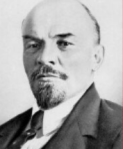 good control is better”, the authorities have painstakingly screened the 100 odd independent candidates. According to the constitution, every citizen of Vietnam over 21 has the right to run, but the umbrella organization of all Vietnamese mass organizations, the Vietnam Fatherland Front (VFF) has a mandate to screen all candidates, whether fielded by the Communist Party, other mass organizations or self-nominated. In the 2015 Law on the Vietnam Fatherland Front Article 19 stipulates: “The Vietnam Fatherland Front shall organize in accordance with law consultations, selection and nomination of candidates for deputies to the National Assembly or People’s Councils;…” With the authorities already alarmed before the nomination deadline on March 13, the VFF has done the required job by eliminating all but 11 self-nominated candidates for the National Assembly, two of them being finally elected. Since the vetting process is not transparent, the rejected candidates and their supporters are not happy. A prominent victim of the screening, the “five gates”, was pop star Mai Khoi, also called Vietnam’s Lady Gaga. For her campaign posters she had dressed down considerably, showing herself as a serious conservative candidate, which was obviously not enough to make her trustworthy.
good control is better”, the authorities have painstakingly screened the 100 odd independent candidates. According to the constitution, every citizen of Vietnam over 21 has the right to run, but the umbrella organization of all Vietnamese mass organizations, the Vietnam Fatherland Front (VFF) has a mandate to screen all candidates, whether fielded by the Communist Party, other mass organizations or self-nominated. In the 2015 Law on the Vietnam Fatherland Front Article 19 stipulates: “The Vietnam Fatherland Front shall organize in accordance with law consultations, selection and nomination of candidates for deputies to the National Assembly or People’s Councils;…” With the authorities already alarmed before the nomination deadline on March 13, the VFF has done the required job by eliminating all but 11 self-nominated candidates for the National Assembly, two of them being finally elected. Since the vetting process is not transparent, the rejected candidates and their supporters are not happy. A prominent victim of the screening, the “five gates”, was pop star Mai Khoi, also called Vietnam’s Lady Gaga. For her campaign posters she had dressed down considerably, showing herself as a serious conservative candidate, which was obviously not enough to make her trustworthy.


Only two elected self-nominated candidates, one of them a businessman from the North, and a hematologist, means 50 % less than in the last election, when four had made it. Another 19 non-party members have been nominated by state institutions, down from 42 non party members altogether last time.
Among the other results, published so far, are:
– An enormous voter turnout of 99.35 %
– National Assembly: 496 members (317 first-timers) elected out of 870 candidates Four seats remain vacant because of insufficient turnout in four provinces. Maybe the same shortcoming has been reported in Singapore’s Straits Times (Link): “Deputy assembly chairman Phung Quoc Hien said the high national turnout showed the ballot was a success, even with some instances of fraud and calls on social media for a voter boycott.” Oh-oh!
– To be elected were also 3,918 provincial councilors, 24,993 district councilors and 294,055 commune councilors for the 2016-2021 period. The official announcements so far focus on the National Assembly. It is not excluded that the local results are not everywhere as expected…
– The chairperson of the NEC acknowledges that “There were some errors on voting cards that led to invalid votes and forced a re-election in some cases. There were also some cases of negligence when it came to controlling the number of ballots issued and the number received. Many constituencies didn’t elect enough representatives, especially at communal level, and some people voted on others’ behalf” (VNExpress, June 8)
– 62.5 % of elected delegates have a master’s degree or higher; 36.3 a bachelor’s degree; and 1.2 percent, or six delegates, don’t have a degree at all. The party does not mention workers and farmers any more.
– 133 delegates are women, 26.8 % and slightly short of the 30 % target
– Vietnam’s ethnic minorities hold 17.3 % of the seats
– 182 candidates (36.7 percent of total NA delegates) have been nominated centrally, 312 delegates were nominated by local organizations
But nearly half of the centrally nominated candidates in Ho Chi Minh City have not been elected and about a third in Hanoi, with a few more in smaller places, altogether 15. The alleged national unity seems to have some risky corners.
– All top leaders were re-elected, General Secretary Nguyen Phu Trong with 86.47 %; President Tran Dai Quang with 75.08 % ; Prime Minister Nguyen Xuan Phuc with 99.48 %; and NA Chairwoman Nguyen Thi Kim Ngan with 91.46 %
The lowest score went to the minister for Natural Resources and Environment, probably because of the dead fish crisis, but his 65 % would still be a dream result in more competitive systems
Open Questions to follow up:
Behind the official fanfares about the feast of democracy in Vietnam it will be interesting to wait for more information about the provinces with insufficient turnout and the four vacant seats. But even more interesting will be detailed results of the Peoples’ Councils elections on all levels from province down to the municipalities. Communication and social networks won’t make it easier for the party to control nearly 100 m Vietnamese.
Which New Power Arrangements in the Philippines?
Partyforumseasia: With the high voter turnout of 81.62 percent, president-elect Duterte’s landslide lead was so clear that his victory could be announced long before all votes had been properly counted. The very successful electronic vote counting system left no doubts only 17 hours after the polling stations closed when already 95 percent of the results were available to the Election Commission (Comelec). Technically and organizationally, this is an admirable success story. Runners up Mar Roxas and Grace Poe gracefully conceded defeat immediately and congratulated Duterte.
The race for the vice-presidency, which is a separate election in the Philippines, not a running mate solution like in other presidential systems, turned out to be a more complicated story. Only on Friday, May 20th, at 7 p.m., eleven days after the election, the paper thin lead of Leni Robredo was finally confirmed by the Comelec. She won over Ferdinand Marcos, eldest son of the infamous dictator with the same name, with just 263,473 votes. This is a mere .92 percent of all 28.57 million valid votes, but clear enough. With some local results contested or coming in late from remote islands, the lead was sometimes attributed to Marcos and sometimes to Robredo. She can now smile, first for herself and her victory, but also for possibly keeping open a door into the new government for her party, the Liberal Party of the Philippines (LP).
President-elect Duterte, who will take over from president Aquino end of June, had offered her a post in his cabinet but changed his mind already. He may have preferred Marcos. Duterte is considered to be a social democrat and open to the Communist Party of the Philippines (CPP), to which he has offered four cabinet portfolios, namely agrarian reform, social welfare, environment and natural resources, and labor. “Thanking his former student for the “magnanimous offer,” exiled CPP founding chair Jose Maria Sison politely declined the cabinet positions, clarifying, however, that the offer would be studied seriously.” (Philippine Daily Inquirer, May 21st, 2016, LINK).
A government with Socialists and Communists would be quite a game changer in the Philippines and threaten the cozy power arrangements of the elites and the traditional politicians called “trapos“. Duterte himself is backed by his party Partido Demokratiko Pilipino-Lakas ng Bayan or PDP Laban with now 82 out of 292 seats in the House of Representatives. They have already signed a coalition agreement with the conservative Nacionalista Party (20 MP’s and 5 senators), the center right National Unity Party (24 MP’s) and the conservative Nationalist People’s Coalition (36 Mp’s and 2 senators). Altogether 162 members of Parliament will give Duterte already a comfortable majority of 55 percent, but the opportunistic political tradition will certainly see more elected members switch into the presidential camp.
They have already signed a coalition agreement with the conservative Nacionalista Party (20 MP’s and 5 senators), the center right National Unity Party (24 MP’s) and the conservative Nationalist People’s Coalition (36 Mp’s and 2 senators). Altogether 162 members of Parliament will give Duterte already a comfortable majority of 55 percent, but the opportunistic political tradition will certainly see more elected members switch into the presidential camp.
A big question is now whether Leni Robredo as vice president will open a door for her Liberal Party which, otherwise, would lose all the jobs in government and administration it held during the six Aquino years. In terms of ideology and compatibility it might look awkward to coalesce with Socialists and Communists, but since at the end ideology is not that important, not in the Philippines and no longer in Western democracies, a flexible solution will be found. May it help the country to catch up and improve the living conditions of the neglected part of the 100 million Phillipinos.
Happiness and Politics in Southeast Asia
Partyforumseasia: Is happiness a political category or can it be a political goal?
The Irish philosopher Francis Hutcheson introduced a new political interpretation of happiness in his 1725 treatise “An Inquiry into the Original of Our Ideas of Beauty and Virtue“. His formula “The greatest Happiness for the greatest Numbers” influenced the political thinking of the 18th century and made it into the American Declaration of Independence.
In 1972 the notion was re-introduced into the international arena by the King of Bhutan as “Gross National Happiness (GNH) and an alternative to the western concept of Gross Domestic Product (GDP).
Today, March 20, we celebrate the International Day of Happiness (or Happiness Day) which was instated by the United Nations on 28 June 2012 in a rare unanimous vote of all 193 nations as resolution 66/281 (Link).
In our predominantly Hobbesian world with endless wars, exploitation, hunger and oppression the ideal of a better society is nice and worth supporting. The UN and charitable organizations have created programs and comparative rankings of happiness among the world’s nations. The criteria used by the UN are as follows:

Not surprisingly, the richest countries are rated as the most happy ones, starting with Denmark (no. 1), Switzerland, Iceland, Norway and Finland, followed by Canada, Netherlands, New Zealand, Australia, and Sweden (no. 10).
Southeast Asia’s top scorer, no surprise as well, is Singapore – just by a few points on top of former colonial master Great Britain:
![]()
Singapore’s GDP-beam in yellow is rather visible, but good and clean governance as well as increasing social support for the needy have at least created a strong absolute majority of voters happy with the ruling People’s Action Party. The small and splintered opposition may be unhappy politically but quite happy privately…
Runner up is Thailand, politically not the happiest country in Southeast Asia right now. The military regime and the uncertain way back to democracy are weighing down the mood of many citizens.
![]()
Second runner up, Malaysia, has also seen happier days in its political development. PM Najib may survive through all the scandals surrounding his government, but many Malaysians are not really happy with the status quo.
![]()
Indonesia, politically and economically at an assortment of crossroads, should be relatively happy in 2016, probably more than Thailand and Malaysia.
![]()
The Philippines have been known as mastering economic and political hardship with a big smile. The administration of President Aquino has presided over quite a number of positive developments. Partyforumseasia would rate the country better than no. 82!
![]()
Vietnam is burdened with an antiquated bureaucracy and performs below her true potential. Maybe this has caused the low ranking world-wide an in the region.
![]()
Laos is in many ways similar to Communist ally Vietnam but poorer and slower. The regime keeps the country and its true potential somewhat hidden, maybe the Laotians are more happy than we think?
![]()
Myanmar is just entering a new political era under the leadership of Aung San Suu Kyi. The popular mood is very upbeat and optimistic, so the low UN-ranking seems to be outdated. In terms of new chances and happiness Partyforumseasia would rank the country much higher.
![]()
Cambodia comes last in Southeast Asia, probably due to the domestic struggle between the ruling CPP and the opposition CNRP, as well as Prime Minister Hun Sen and opposition leader Sam Rainsy. International help and ODA have been flowing in for decades now, there is progress, true, but the situation could be better. The young generation is certainly more optimistic and happier than the older one still haunted by memories of the Khmer Rouge nightmare and the Vietnamese occupation.
![]()
Politics and Happiness? Understood as life chances and choices for the individual citizen, political happiness is not a pipe dream. As we see all over the world, wrong policies and the wrong type of political leaders are spoiling or destroying the lives of hundreds of millions of people. May the happiness ranking contribute to more awareness of the importance of good governance and political responsibility.
Malaysia: Mahathir’s or Najib’s War of Attrition?
Partyforumseasia: So far, Prime Minister Najib Razak has managed to weather the months of heavy political head winds with remarkable cold blood. His former mentor turned nemesis, Dr. Mahathir Mohamad, so far, has been the driving force in a sort of “Oust-Najib-Movement” and recently brought together a group of Najib enemies described in the Malaysian media as “strange bedfellows”, especially because Mahathir’s earlier victim, Anwar Ibrahim, has joined from behind bars. He has been imprisoned under Mahathir and is now serving a five year term under Najib, again for alleged sodomy and again perceived as politically motivated.
Last Monday, 7th March, in a speech at the opening of parliament, Malaysia’s 88-year-old King, Tuanku Abdul Halim Mu’adzam Shah, “told Malaysian legislators that they should stop playing politics of narrow interests, as this has gone on for so long that it has become stressful for the people and the government.” (Asia One). Given the circumstances of the entrenched war between the PM and his domestic foes, the king’s admonition sounds rather in support of Najib and very probably won’t end the war of attrition by Mahathir and partners including the opposition. But Mahathir has a credibility problem himself. Many  see him guilty of starting the level of money politics he is accusing Najib of, only that Najib with the hundreds of millions in his private accounts has pushed it to unprecedented levels and triggered international suspicion.
see him guilty of starting the level of money politics he is accusing Najib of, only that Najib with the hundreds of millions in his private accounts has pushed it to unprecedented levels and triggered international suspicion.
Money politics under Najib: If the king may not wield much political influence, there are other strong arguments for the Prime Minister’s supporters in the UMNO party hierarchy to keep the number of defectors relatively small. “He didn’t invent the system but Najib has perfected the art of sleaze”, writes the AsiaSentinel on 2 March (Link), and continues with very concrete figures:
“Once a month, each of the 191 loyal district chiefs that make up the hierarchy of the United Malays National Organization receives RM50,000 for “expenses.” It doesn’t come from Malaysia’s fiscal budget. It comes from Prime Minister Najib Razak’s personal accounts at Ambank in KL. Multiplied out, that totals RM114.6 million annually (US$27.498 million). It is a system that has sustained party loyalty through several premiers for 35 years, if Najib is to be believed, and it points to the deep, long-running corruption of the entire Malaysian political system. It is just part of what keeps Najib in power against the combined investigations of five countries on allegations of money laundering, fraud and bribery.”
The Wall Street Journal is also in the forefront of questioning PM Najib’s personal finances by publishing beginning of March new estimations that he has more than a billion US$ in his personal accounts and that much of it originates from the mismanaged and debt-ridden 1MDB investment fund whose board of advisers happens to be chaired by Mr. Najib.
In regional comparison money politics and patronage are common and sophisticated. Members of parliament as well as local office bearers of political parties are expected to “help” their voters, from waving parking tickets to funding businesses. But it seems that relatively rich Malaysia has reached levels which a majority of voters is no longer prepared to condone. Najib seems to be in control so far, not least because the opposition is divided, but the scandals may change the public mood so much against UMNO that Najib will be more of a liability than until today.
Strategy-wise, though, Najib follows the (immoral) textbook prescriptions: Business as usual, deny everything until you can’t deny it any more and in thin slices, attack the attackers, and eliminate your internal enemies.
2016
Partyforumseasia would like to extend our best wishes for the new year to all readers:
 See also some interesting figures about Southeast Asia from (Link here)
See also some interesting figures about Southeast Asia from (Link here)
Myanmar Election: How Free and How Fair?
Partyforumseasia: Myanmar’s democratic opening has received regional and world-wide attention and praise, and subsequently attracted the interest of all shades of businesses, from the well-known fast-buck-entrepreneurs to long-term investment interests. Especially the latter are vital for the country if it wants to catch up with the neighbors in Southeast Asia. 
The recent purge within the military dominated Union Solidarity and Development Party and the sacking of rather popular speaker of parliament Shwe Mann are widely interpreted as a step back from the reform drive promised by President Thein Sein.
Now speculations for the upcoming election on 8 November start to get more heated. Democracy icon Aung San Suu Kyi is sure that her party will win “if polls can be free and fair” (Agence France Press). And the country’s army chief, senior general Min Aung Hlaing recently declared:
“We wouldn’t mind even if the National League for Democracy won in the next general election, as long as it is free and fair. The Tatmadaw’s (Army) desire is to see the upcoming elections be held free and fair.” (Straits Times, 26/08/2015)
On the background of heavy-handed interference since the 1990 elections when the military had underestimated the NLD and simply ignored the results, such a statement sounds a bit too good to be true. At least the generals have learned to speak to the international media and the investors who want to see stability. The 2010 ballot was widely seen as rigged and a quarter of the parliamentary seats is reserved for unelected army officers anyway.
But to be fair with struggling Myanmar, organizing free and fair elections with a level playing field is certainly not as easy as in Denmark or Sweden. Ongoing problems with 135 (!!!!) distinct ethnic groups officially recognized by the government, festering and nearly intractable pockets of civil war with some of the minorities, the Rohingya question unsolved, rural underdevelopment and lack of infrastructure wide-spread, all that makes national elections more than a challenge. The definition of free and fair certainly has to be adapted to the local circumstances.
If the NLD wins a decisive majority, we have to take into account that its uncontested leader Aung San Suu Kyi is still full of fighting spirit but already 70 years old. The constitution does not allow her to be president and the president is head of the government. Details of the constitutional set-up are sobering: “The Commander-in-Chief appoints the Ministers of Defence, Home Affairs and Border Affairs, selecting candidates from within the Defence Services (Tatmadaw), while the President appoints the remainder. The President also appoints the Deputy Ministers of the respective ministries, following the same qualifications as those of Union Ministers, with the exception of age (35 years, instead of 40).” Source:Wikipedia, Cabinet of Myanmar.
On this background it may be easy for the military to look good with free-and-fair statements and that they don’t mind if the NLD wins…
Leaders and Lovers: The “Alpha Male” in Politics
Partyforumseasia: In several European countries it is sometimes not easy to find candidates willing to step forward and expose themselves and their families to the public scrutiny and attention which come with a mandate. The material rewards are simply not attractive enough since any increase in politician’s salaries creates a storm in the media and the public. With the low image of politicians in many countries world-wide one wonders what motivates men and women to run. There is certainly a percentage of people with a sense of duty and mission to serve their country or community, even at a high price in terms of time and privacy. 
In many parts of Southeast Asia politics is business in big style and the financial spoils of power justify the high stakes in ferocious power struggles. Another group is eaten up by ambition, they often come from a political family and go for status and recognition. Getting used to some privileges can create a certain addiction because they are being taken for granted after a while in office. When Churchill was asked what he missed most after being voted out as prime minister, his famous laconic answer was “transportation”… Everybody who has been closely watching elections could see the extremely emotional tension of incumbents and new candidates. A more or less narcissistic element is all too obvious in these existential situations: Do I get enough respect and recognition? Do the people love me?
Some politicians seem to exaggerate this urge to be loved, though. Since status and power are obviously increasing erotic attractiveness, admiration and sex may be another reward which compensates the sacrifices. Political history is full of examples, up to orgasmic mass hysteria when idolized leaders mesmerize crowds. And in many societies macho leaders easily get away with constant affairs, from John F. Kennedy or Mao Tse Dong and Silvio Berlusconi to certain prominent leaders in Southeast Asia.
 Though it is also a question of compliance of the media, whether personal affairs are being exempted from public scrutiny or not, the Philippines seem to be the regional champion in infidelity. Former president Joseph Estrada, now mayor of Manila, admitted to have fathered at least eleven children with six different women. And former senator Ramon Revilla was proud of his 72 (!!) children with 16 women. “Alpha male” types of politicians with their natural leadership impact on fellow males seem to be extremely attractive for certain women, and their known infidelities obviously don’t affect their credibility as lovers and leaders alike.
Though it is also a question of compliance of the media, whether personal affairs are being exempted from public scrutiny or not, the Philippines seem to be the regional champion in infidelity. Former president Joseph Estrada, now mayor of Manila, admitted to have fathered at least eleven children with six different women. And former senator Ramon Revilla was proud of his 72 (!!) children with 16 women. “Alpha male” types of politicians with their natural leadership impact on fellow males seem to be extremely attractive for certain women, and their known infidelities obviously don’t affect their credibility as lovers and leaders alike.
Voter Turnout in Southeast Asia
Partyforumseasia: IFES, the International Foundation for Electoral Systems, offers a broad choice of reference material. We have selected the countries in Southeast Asia for easier reading. But the world-wide comparison is helping us to avoid prima-vista conclusions. If a higher voter turnout would mean more democratic legitimation, Vietnam and Laos were twice as democratic as the United States of America. Doubts about the USA’s political system are allowed and widespread among Americans, but there is no comparison here with the remaining Communist regimes in Southeast Asia.
As IFES points out at the end of a recent article on“Global Measures of Electoral Credibility: Voter Participation and Political Finance”By Ayesha Chugh and Hani Zainulbhai,September 17, 2014 – IFES ( Link ), “While variables like voter turnout and political finance are useful, electoral credibility is ultimately a nuanced concept that requires consideration of the full context of an election.”
Indeed, but it is certainly useful to compare the different systems in the region in light of the voter turnout in the last years. The following charts are due to IFES on www.ifes.int/vt/
The regional overview (Last parliamentary elections) Compiled by Partyforumseasia
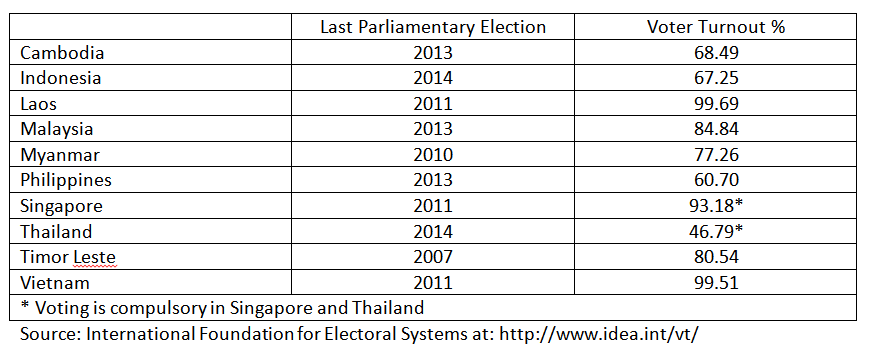
Detailed voter turnout statistics for the ten countries of Southeast Asia (Brunei has no parties) see the following page in the Partyforumseasia database:
Voter Turnout in Southeast Asia
One of Southeast Asia’s Most “Successful” Political Godfathers?!
Partyforumseasia: Transition of power is not a particularly characteristic political feature in Southeast Asia, and even less so for Malaysia. 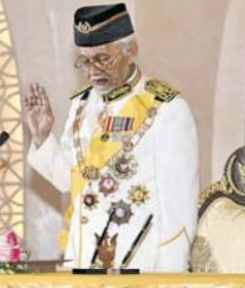 The continuing influence of former long-term Prime Minister Mahathir Mohamad, the “culling” (by a another dubious sodomy conviction) of opposition leader Anwar Ibrahim before he threatened to win the governorship of the country’s most important federal state in March are two examples. The third scandalous case in point is located in Sarawak, the huge East Malaysian federal state on the island of Kalimantan (Borneo).
The continuing influence of former long-term Prime Minister Mahathir Mohamad, the “culling” (by a another dubious sodomy conviction) of opposition leader Anwar Ibrahim before he threatened to win the governorship of the country’s most important federal state in March are two examples. The third scandalous case in point is located in Sarawak, the huge East Malaysian federal state on the island of Kalimantan (Borneo).
After thirty-three (33!) years as Chief Minister in this resource rich state with a poor population, Tan Sri (a Malaysian title) Taib Mahmud steps down at the age of 77 on Friday 28 February, only to be sworn in as governor of the same federal state a day later, on 1 March. The succession is “very orderly” and also safe for the retiree, the new Chief Minister being a loyalist of the old one and a former brother in law. And it is nearly close to bringing in new blood, the successor is 70 years young…
It looks more than probable that Taib Mahmood had a lot of good reasons to protect his “retirement” so carefully. He has been attacked as one of the most corrupt politicians in the region, his personal assets being openly estimated at 15 billion $, that of his extended family at over 21! After his three decades at the helm and being responsible for all logging and land related issues, only 5% of Sarawak’s original rain forests are still untouched, but threatened by Taib’s blueprint for the next level of “development”.
See more details in Luke Hunt’s analysis in the (link here) The Diplomat
Godfather Taib’s role on the federal level was also important and has contributed to his long-term hold on power: He practically guaranteed Sarawak’s usefulness as a fixed deposit vote bank for the ruling Barisan Nasional (BN). Without his contribution of 25 federal parliamentary seats in 2013 the BN had lost an election which it won with a minority of the popular vote, heavy gerrymandering and … Sarawak. But increasing accusations for corruption have made Taib a growing liability as well, so an “orderly transition of power” had become necessary.
Fast Growing Internet Risk for Politicians – PM Najib in Hot Soup
Partyforumseasia: Internet and social networks have attracted politicians all over the world as an instrument for personal propaganda and the feeling of closeness to their voters. For Prime Minister Najib Razak of Malaysia 2.1 million “Facebook likes” seem to signal popularity. The difference between these likes and the 3.4 million party members may simply reflect the focus of UMNO on rural Malay voters and their lacking internet access, not necessarily his lack of support within the party .
 Social media politics is a double-edged sword
Social media politics is a double-edged sword
The avalanche-like speed of communication when a post goes viral can ruin the image of a politician within hours or days. In an era where silly remarks ruin careers (an arrogant Australian wealth manager just lost his cushy job in Singapore for calling commuters on public transport “poor people”), politicians in the limelight must be extremely cautious.
PM Najib may not be fully aware of the danger. Facing a sh*t storm over his remark that food prices are not all up, since kangkung (water spinach) is getting even cheaper, many Malaysians saw it as adding insult to injury. But Najib insists and continues with more alledgedly cheaper items like sotong (squids). The public is not amused, but laughs about countless jokes ridiculing the Prime Minister.
Reports by the Malaysian Insider may be satirical, but if PM Najib is seriously asking his ministers to take a media training course, more jokes can be expected to target him in the coming weeks and months.
PS: Former PM Mahathir has already admitted last June that he might have made a mistake in giving guarantees for Internet freedom…!!
Compromise in Cambodia, Deadlock in Thailand?
Partyforumseasia: Yesterday The Phnom Penh Post surprised with reporting on a possible compromise between PM Hun Sen and the opposition led by Sam Rainsy:

 With the crackdown on striking garment workers two weeks ago the situation in Phnom Penh looked worse than the crisis in Bangkok. But the Thai deadlock is far from over and the intransigence of Suthep Thaugsuban (“No win-win situation, it is either they win or we win…”) signals a further increase of unrest.
With the crackdown on striking garment workers two weeks ago the situation in Phnom Penh looked worse than the crisis in Bangkok. But the Thai deadlock is far from over and the intransigence of Suthep Thaugsuban (“No win-win situation, it is either they win or we win…”) signals a further increase of unrest.
Whatever the outcome in Cambodia may be, it is encouraging to hear Sam Rainsy give credit to the CPP leadership. “But they are also responsible people to some extent” he said in a press conference. The demands of PM Hun Sen to step down and snap elections being held was dropped. Instead the negotiations should focus on electoral reform, adjustments in the parliamentary set up and a TV license for the opposition.
All this may be Southeast Asian shadow play, but it could be a reminder to big neighbor Thailand that democracy is substantially compromise – for the benefit of the country.
Who is Funding Bangkok’s Street Protests?
Partyforumseasia: According to Akanat Promphan, spokesman of the People’s Democratic Reform Committee (PDRC), the protest activities cost between two and five million Baht (up to 160,000 US$) per day. Where’s the money coming from? That is the headline of the Singapore Straits Times’ Thailand correspondent in an article on January 9th, page A18.
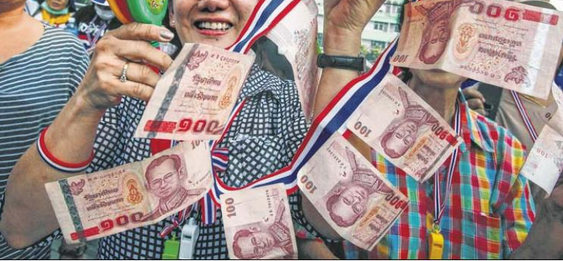
Rumours on the internet seem to suspect big companies, especially the ones sidelined by the Puea Thai government. Akanat denies that as “rarely” and holds that ordinary people support the protesters with money, food, tents, or blankets for the cooler nights. He also reports that protest leader Suthep Thaugsuban, with declared assets of more than six million US$, has even sold family land to start funding the protests.
The truth is probably a mix of the two and more possibilities, but the sophistication of the operations, including toilets, mobile kitchens, stages, big tents, sound systems and tens of thousands of people, suggest that there is quite a big logistical and planning effort behind it. And given the level of money politics in the country, the cui bono (for who’s benefit) question must be appropriate. If Suthep and the Democrat Party are right in criticizing the Shinawatra corruption (Suthep criticizsed Thaksin’s insider trading already in 1997 in Parliament), they themselves have quite a big skeleton in the cupboard. They narrowly escaped dissolution for an undeclared donation of more than 8 m US$ by a cement company (the legal donation threshold stands at 300.000) in 2005 and were acquitted in 2010 on technical grounds, because the prosecution had failed to follow proper procedures. Many Thais are not convinced that the Democrats are cleaner than Puea Thai and the Thaksin clan.
With the planned shut down of Bangkok coming Monday, 13 January, all friends of Thailand can only hope for a predominantly peaceful continuation of the standoff which is a most dangerous result of the country’s elite failure and political brinkmanship.
De-mock-racy or Demo-crazy? Political Brinkmanship in Thailand
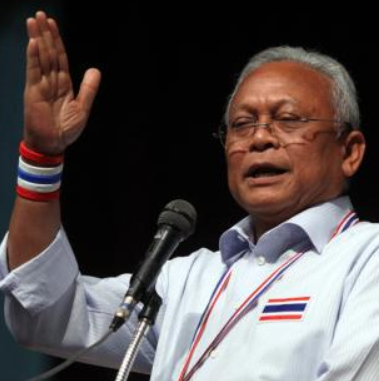 Partyforumseasia observes with sadness the ongoing political drama in Thailand. Obviously former Deputy Prime Minister Suthep Thaugsuban from the Democrat Party tries to topple the Yingluck government at any cost for the country. By increasing the regional division between the predominantly Democrat controlled South and the overwhelmingly Puea Thai leaning North as well as between Bangkok and the rural majority he plays with fire. And by whipping up political passions hitherto unknown in the country, the future governability of a nation of 70 million people will be at risk. Many internal analysts speak already of the threat of a civil war, the spreading violence between the groups already being frightening enough.
Partyforumseasia observes with sadness the ongoing political drama in Thailand. Obviously former Deputy Prime Minister Suthep Thaugsuban from the Democrat Party tries to topple the Yingluck government at any cost for the country. By increasing the regional division between the predominantly Democrat controlled South and the overwhelmingly Puea Thai leaning North as well as between Bangkok and the rural majority he plays with fire. And by whipping up political passions hitherto unknown in the country, the future governability of a nation of 70 million people will be at risk. Many internal analysts speak already of the threat of a civil war, the spreading violence between the groups already being frightening enough.
PM Yingluck Shinawatra and Puea Thai, according to all polls, will win the February 2 election, if it materializes. This dominance over the ballot boxes can be seen as engineered by risky populist policies like cheap (30 THB) health care for the poor and rice subsidies for farmers which cost hundreds of billions and are not sustainable even medium term.
But Suthep and his supporters in the Democrat Party will be held responsible for the damage they risk to do to Thailand’s democratic and economic development and the country’s future governability.
Coalition Strategies in Malaysia: Barisan Component Parties No Longer Needed?
Partyforumseasia: The Malaysian Chinese Association (MCA)  has been thriving for decades as appendix of UMNO, helping to secure its absolute majority by bringing in substantial numbers of Chinese votes as a regular dowry and a counterbalance to the Chinese opposition DAP. Formation and success of the Pakatan Rakyat opposition coalition and the multi-racial approach of its Parti Keadilan Rakyat (PKR) as well as the growing attractiveness of the DAP for Chinese voters have undermined MCA’s traditional role. Factional infighting has crippled the party for some time already and the extremely narrow results in the recent internal elections may herald the further decline of what was once Malaysia’s second biggest political party. In 2008 it still won 15 parliamentary and 31 state seats, in May 2013 only 7 and 11 seats respectively. But, as it was pampered by big brother UMNO with ministerial portfolios and business opportunities during its heydays, MCA is still very rich. According to a Straits Times article on 22 December the party assets are estimated at nearly 3 billion RM, which comes to over 900 million US$. These assets, land, buildings, companies (Huaren Holdings) and a 42% stake in the Star daily may keep the leadership posts embattled. 2,325 delegates elected president and deputy president, four vice-presidents and 25 central committee members, and Mr. Liow Tiong Lai has won the presidency by just 26 votes.
has been thriving for decades as appendix of UMNO, helping to secure its absolute majority by bringing in substantial numbers of Chinese votes as a regular dowry and a counterbalance to the Chinese opposition DAP. Formation and success of the Pakatan Rakyat opposition coalition and the multi-racial approach of its Parti Keadilan Rakyat (PKR) as well as the growing attractiveness of the DAP for Chinese voters have undermined MCA’s traditional role. Factional infighting has crippled the party for some time already and the extremely narrow results in the recent internal elections may herald the further decline of what was once Malaysia’s second biggest political party. In 2008 it still won 15 parliamentary and 31 state seats, in May 2013 only 7 and 11 seats respectively. But, as it was pampered by big brother UMNO with ministerial portfolios and business opportunities during its heydays, MCA is still very rich. According to a Straits Times article on 22 December the party assets are estimated at nearly 3 billion RM, which comes to over 900 million US$. These assets, land, buildings, companies (Huaren Holdings) and a 42% stake in the Star daily may keep the leadership posts embattled. 2,325 delegates elected president and deputy president, four vice-presidents and 25 central committee members, and Mr. Liow Tiong Lai has won the presidency by just 26 votes.

Strategic Lessons: Piggy rides are dangerous coalition strategies. Junior partners have to maintain their usefulness for big brother or risk decline. Assets may keep them alive for some time but not for long.
Difficult to compare but interesting:
The German Free Democratic Party (FDP), a long term successful piggy rider in various coalitions, has lost all seats in the federal parliament in September this year. Its survival may be more difficult than for MCA because it has no assets…
Strategy or Kamikaze? Thailand’s Democrat Party…
Partyforumseasia: … between the devil and the deep blue sea, or in the more drastic German variation of the saying, choosing between plague and cholera?The problems of the Democrat Party are serious enough: It has not won an election since 1992, it narrowly escaped dissolution for irregularities with campaign donations, Chairman Abhisit Vejjajiva, just re-elected yesterday, is indicted for murder as main responsible for the army crackdown on protesters in 2010, and Prime Minister Yingluck may have outmaneuvered them by calling elections for February.
The Democrat lawmakers have resigned en masse to join Suthep Thaugsuban, a former deputy Prime Minister and prominent Democrat. Suthep is now the leader of protests against the “Thaksin system”, rallying hundreds of thousands and organizing illegal blockades around ministries and government buildings. This political “pied piper of Hamelin” is demanding that an unelected “people’s council” introduces reforms before the next Parliament may be elected in a year’s time.
 If the Democrat Party follows Suthep, they will decide on 27 December to boycott the February elections. Participating would probably mean that they lose against Puea Thai, the Thaksin Party. Boycotting would mean losing the Democrat in the party’s name. The party is probably split internally, so their strategy of resignation from Parliament may turn out to be more kamikaze than strategy.
If the Democrat Party follows Suthep, they will decide on 27 December to boycott the February elections. Participating would probably mean that they lose against Puea Thai, the Thaksin Party. Boycotting would mean losing the Democrat in the party’s name. The party is probably split internally, so their strategy of resignation from Parliament may turn out to be more kamikaze than strategy.
But PM Yingluck had her own kamikaze strategy: her amnesty bill triggered the whole turmoil the country is facing now and more and more affects tourism and economy.
Malaysia: A Good Question Concerning the Pakatan Rakyat Opposition Coalition
Partyforumseasia: Prime Minister Najib Razak’s leadership of UMNO has been strenghthened and confirmed by the recent internal party polls. 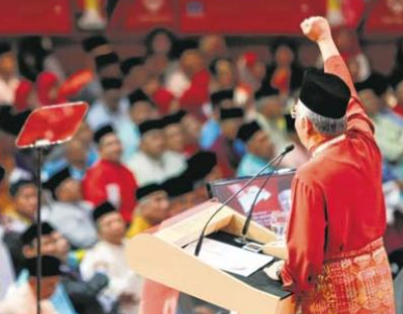 For the time being there are no visible challengers around and Najib feels more than confident in promising the 3000 party leaders attending the annual meeting a continuation of the “Malays First Policy”. This is seen as race based by the roughly 40% Non-Malay Malaysians and has contributed to a surge in the popular vote for the opposition in the general election in May.
For the time being there are no visible challengers around and Najib feels more than confident in promising the 3000 party leaders attending the annual meeting a continuation of the “Malays First Policy”. This is seen as race based by the roughly 40% Non-Malay Malaysians and has contributed to a surge in the popular vote for the opposition in the general election in May.
In terms of election strategy this makes sense, though, since UMNO’s main support comes from carefully gerrymandered rural constituencies with huge Malay majorities. As long as the first-past-the-post electoral system remains UMNO can focus on these vote banks while the opposition coalition might win the urban votes but fail to win a majority in parliament.
An interesting question has been raised by Murray Hunter in the New Mandala: Whether Pakatan Rakyat deserves to be in government!!!!
See (link here) New Mandala
![]() Whether a party or coalition really deserves to be in government is a difficult question. But there are indeed some big question marks concerning the cohesion and stability of the Pakatan Rakyat coalition. Some see the three coalition partners as somewhat strange bed fellows, united only in their struggle against the ruling Barisan Nasional.
Whether a party or coalition really deserves to be in government is a difficult question. But there are indeed some big question marks concerning the cohesion and stability of the Pakatan Rakyat coalition. Some see the three coalition partners as somewhat strange bed fellows, united only in their struggle against the ruling Barisan Nasional.
Philippino Supreme Court: Throwing out the Baby with the Bath Water?
Partyforumseasia had taken up the pork barreling saga in the Philippines recently.  Yesterday, November 19th 2013, the Supreme Court has declared the Priority Development Assistance Fund (PDAF) or pork barrel fund “unconstitutional”. Many concerned citizens welcome this decision with a sigh of relief, first letters to the editor thank the Lord for this decision.
Yesterday, November 19th 2013, the Supreme Court has declared the Priority Development Assistance Fund (PDAF) or pork barrel fund “unconstitutional”. Many concerned citizens welcome this decision with a sigh of relief, first letters to the editor thank the Lord for this decision.
See (link here) The Manila Times of November 20th.
For the political parties and politicians it will be a severe blow, cutting them off from the most important funding source for their activities and election campaigns. But their shamelessness in the practical handling of kick-backs from development funds in the billions of Pesos and millions of $ has triggered the loudest ever public outcry and the radical decision of the Supreme Court.
The question is now how the political system can find a legal and socially acceptable way of funding parties, politicians and election campaigns. As e.g. the German example shows, even generous public funding is not sufficient. In 2013 the “Campaign Cost Reimbursement” for political parties will amount to 154 million €, but the combined budgets of all eligible parties are being estimated at 450 to 500 m €. Donations are indispensable in every political system but not easy to control and protect against influence peddling and lobbyism.
Political “Dynasties” in Southeast Asia
Partyforumseasia: Political families are not uncommon in party politics, take for example the 41st President of the United States, George H.W. Bush and his son, the 43d President, George W. In Europe it happens less on the top level, but often enough in regional and local politics. The corruption and enrichment scandal in Indonesia’s Banten province and the remarkable career of Mukhriz Mahathir in Malaysia have brought the issue back into the media.  In the Mukhriz case two narrowly lost elections, his candidacy for one of UMNO’s vice-presidential posts and the recent by-election in the federal state of Kedah, where he supported the local party candidate, are interpreted as defeat and the campaign support by his father Mahathir Mohamad, 88, a liability, signalling the end of father Mahathir’s overpowering influence in Malaysia’s and UMNO’s politics.
In the Mukhriz case two narrowly lost elections, his candidacy for one of UMNO’s vice-presidential posts and the recent by-election in the federal state of Kedah, where he supported the local party candidate, are interpreted as defeat and the campaign support by his father Mahathir Mohamad, 88, a liability, signalling the end of father Mahathir’s overpowering influence in Malaysia’s and UMNO’s politics.
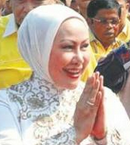 The Banten case (already posted by Partyforumseasia) has much broader ramifications with family members of the governor Ms Ratu Atut holding seats in the national parliament, mayors, deputy regents and numerous business positions close to politics and administration. Continuing practices of money politics remind many Indonesians too much of Suharto’s family clan and the enrichment of his sons.
The Banten case (already posted by Partyforumseasia) has much broader ramifications with family members of the governor Ms Ratu Atut holding seats in the national parliament, mayors, deputy regents and numerous business positions close to politics and administration. Continuing practices of money politics remind many Indonesians too much of Suharto’s family clan and the enrichment of his sons.
If the Banten-related corruption case involving the chief justice of the Constitutional Court should turn out as the tip of the iceberg, as it looks like, it will be more than difficult to fight family dynasties and money politics throughout the huge Indonesian archipelago.
By the way: Partyforumseasia has other (possible) family dynasties on its radar:
Thailand: Not only sister Yingluck, but also son Panthongtae Shinawatra
Malaysia: Mukhriz Mahathir from UMNO and Nik Abduh from PAS
Singapore: Prime Minister Lee Hsien Loong, a successful succession with a long break after his father resigned.
Golkar caught red-handed again
Partyforumseasia: Jon S.T.Quah has chosen a very telling title for his new book, published by ISEAS, Singapore, this year: “Curbing Corruption in Asian Countries. An Impossible Dream?” The latest political corruption scandal in Indonesia seems to underline the impossibility of the dream. Too much money is at stake, too costly are the election campaigns, too greedy the political players, and too toothless the anti-corruption programs of the government.
The Golkar Party seems to be especially vulnerable after rolling in money for decades as the main political instrument of president Suharto who was more than well known for the corrupt practices of his extended family. Indonesia expert Marcus Mietzner* from Sidney University reports that Suharto withheld 100 million US$ from Golkar party funds after his fall in 1998. This gives an idea of the financial dimensions the party was used to.
But Suharto also urged his cronies not to show their wealth with too flashy villas. This advice has obviously been forgotten by Banten governor Ms Ratu Atut and her billionaire family empire. If being known for their collection of Maseratis and Lamborghinis alone was incautious, a direct involvement of the clan in the bribery scandal around the chief justice of the Constitutional Court is a graver political mistake. Madam governor’s youngest brother is accused of offering 1 b Rupiah (about 92,000 US$) to the judge for a favorable decision in an election dispute. A number of Ms Ratu Atut’s close relatives are mayors or district chiefs in Banten province close to Jakarta…And Golkar chairman Aburizal Bakrie, himself one of the richest businessmen in Indonesia, is being quoted as saying that the problem is not the political dynasty!
*Mietzner, Marcus (2007), Party Financing in Post-Soeharto Indonesia: Between State Subsidies and Political Corruption, in: Contemporary Southeast Asia, Vol. 29, No. 2:241
Malaysia: UMNO Polls Without Surprise
Partyforumseasia:The internal party polls are over, UMNO president Najib and his deputy were confirmed uncontested. As The Star Online (click for the link) summarises today, 20 October 2013, “Umno president Datuk Seri Najib Tun Razak’s call for status quo resounded within the party.”
All incumbents for the top party posts have been re-elected, and the probably most anticipated possible win of “rising son” Mukhriz Mahathir was narrowly avoided with 91 votes for Mukhriz and 100 for the incumbent. 
Speculations that Prime Minister Najib Razak’s position as party president had been weakened after the May general election were obviously exaggerated, if even the women wing’s leader Sharizat, tainted
by her “cowgate”- corruption scandal, made it easily with a 90% majority.
The real balance of power between the different factions in the party remains mostly behind the wayang kulit screen, though. But according to analyst Bridget Welsh from Singapore’s Management University, the Mahathir Mohamad camp is angry and expected to hit back (Malaysiakini, 20.10.)
What is interesting beyond the incumbents is how the new internal polling system worked and whether it changed the dynamics within the party. It is difficult to believe vice president Muhyddin’s statement that the new system is “not only a mission to eliminate money politics but more importantly, to strengthen the party by empowering the grassroots” (The Star Online, 20.10.) For the first time, not the traditional 2,500, but 230,000 delegates could vote, but only within one of the 191 branches. This gives the rural branches which are easier to control much more weight than the urban ones with more members. According to Bridget Welsh (Malaysiakini) there is also evidence of vote-buying and the usual top-down pattern in the new system.
Cambodia: Prime Minister Hun Sen Ignores Opposition
Partyforumseasia: Never underestimate the determination of Prime Minister Hun Sen to defend his grip on power and ignore the opposition which may have been tempted to overestimate its leverage after its success in the 28 July elections. Especially calling support from the international community gives Hun Sen the easy counter-argument that he will never allow such interference.
Opposition leader Sam Rainsy might share the bitter experience of Anwar Ibrahim in Malaysia. They both have their nemesis in prime ministers clinging to power and defending a privileged access to the resources of their country.
The Voice of America Cambodia article (http://www.voacambodia.com/content/hun-sen-decries-foreign-interference-in-cambodian-politics/1757797.html) also quotes the PM:
“Hun Sen said in a six-hour address on Wednesday that he opposed “foreign interference” in Cambodia’s political affairs.
“We do not need the recognition of any president or ambassador,” Hun Sen said. “It’s not necessary to ask for the recognition of the UN secretary-general, or signature countries of the Paris Accords. I won’t allow any foreigners to dictate Cambodian politics.”
Partyforumseasia: See also the insightful analysis by Phoak Kung in The Diplomat (http://thediplomat.com/2013/10/14/reforming-the-cambodian-peoples-party/) also available in Bomborra (Click on the blue names to access the article)
Philippines: Is Re-election Without Pork Barrelling Possible?
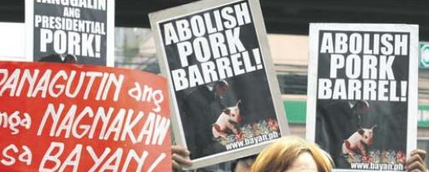 Partyforumseasia: A recent scandal involving 23 suspects including members of parliament and senators as well as former president Gloria Macapagal Arroyo may give new momentum to the fight against political corruption and the endemic pork barrelling in the Philippines, which President Aquino has declared a priority for his term of office. Businesswoman Janet Lim-Napoles is under investigation for setting up bogus NGOs and embezzling nearly $ 290 million from disaster relief and development funds. Up to half of the funds paid out to the NGOs seem to have gone to the accused legislators.
Partyforumseasia: A recent scandal involving 23 suspects including members of parliament and senators as well as former president Gloria Macapagal Arroyo may give new momentum to the fight against political corruption and the endemic pork barrelling in the Philippines, which President Aquino has declared a priority for his term of office. Businesswoman Janet Lim-Napoles is under investigation for setting up bogus NGOs and embezzling nearly $ 290 million from disaster relief and development funds. Up to half of the funds paid out to the NGOs seem to have gone to the accused legislators.
Pork Barrelling is a common political tool in the country and based, like in other countries in the region, on traditional patron-client relations between voters and their MP or senator. According to the political science analysis legislators get kickbacks from development projects (e.g. the Countryside Development Fund – CDF) at a rate of 30%. One full term in office was supposed to yield about $ 200,000 for a House member and $ 600,000 for a senator (estimated 2009 figures). This has been called “Standard Operation Procedures (SOP)” but growing public protest and President Aquino’s determination to fight corruption might end the SOP – probably later than sooner. Lawmakers so far need this additional income to pay for their party and campaign expenses.
Malaysia: Another Rising Son – Nik Abduh in PAS
 Partyforumseasia: Nik Abduh (full name: Nik Mohamad Abduh Nik Abdul Aziz) combines religious credentials and family ties for a promising political career in Malaysia’s Islamic party PAS. Son of the spiritual leader and long term chief minister of PAS stronghold Kelantan Nik Abdul Aziz Nik Mat, the 43 year old Nik Abduh has studied in Nadwatul Ulama (Lucknow) and Darul Uloom (Deoband) in India as well as at the Al Azhar University in Cairo. Whereas these institutions do not necessarily prepare their students for political practice, they may encourage them to go into politics with a religious motivation. And since religion plays an important role in PAS and Malaysia in general, Nik Abduh seems to be cut out for a top leadership role and possible succession of his father as spiritual leader of the party.
Partyforumseasia: Nik Abduh (full name: Nik Mohamad Abduh Nik Abdul Aziz) combines religious credentials and family ties for a promising political career in Malaysia’s Islamic party PAS. Son of the spiritual leader and long term chief minister of PAS stronghold Kelantan Nik Abdul Aziz Nik Mat, the 43 year old Nik Abduh has studied in Nadwatul Ulama (Lucknow) and Darul Uloom (Deoband) in India as well as at the Al Azhar University in Cairo. Whereas these institutions do not necessarily prepare their students for political practice, they may encourage them to go into politics with a religious motivation. And since religion plays an important role in PAS and Malaysia in general, Nik Abduh seems to be cut out for a top leadership role and possible succession of his father as spiritual leader of the party.
Nik Abduh’s political credentials are also impressive. He is deputy chairman of the PAS Youth Wing and defeated a formidable competitor in the May 2013 election, Ibrahim Ali, leader of the Malay rights and supremacy group Perkasa.
In the run-up to party elections in November, the coalition issue with Pakatan Rakyat seems to be controversially discussed among members and candidates. Some say that Nik Abduh and other leaders in his age group are against Anwar’s supporters, called Anwarinas. But Nik is also being quoted with a clear preference for PAS remaining in the opposition coalition.
Less reassuring for the Malaysian Non-Muslims may be Nik’s activities in the religious field like a sticker campaign “Love Rasulullah” (the messenger of God) when the reputation of the Prophet Muhammad seemed to be under attack. Or his clear stance against Shiites and Liberals. But his second name Abduh is possibly referring to the Egyptian Muhammad Abduh, a liberal reformer and key founder of Islamic Modernism.
PAS (Malaysia): Dirty Campaign Tactics Ahead of Party Polls?
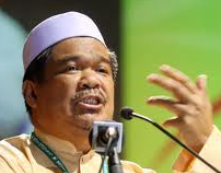 Partyforumseasia: While complaining about dirty and “worst-ever” campaigning tactics ahead of the party polls in November, PAS vice-president Mohamad (Mat) Sabu notes that open campaigning was not permitted in the party but has become the trend among members now. For Partyforumseasia the “new trend” (?) is less surprising than the alleged ban on open campaigning. Competition is or should be normal in a political party and is rather common. If you have ambitions on party posts you must be known by the members and this is hardly possible without some sort of internal campaigning.
Partyforumseasia: While complaining about dirty and “worst-ever” campaigning tactics ahead of the party polls in November, PAS vice-president Mohamad (Mat) Sabu notes that open campaigning was not permitted in the party but has become the trend among members now. For Partyforumseasia the “new trend” (?) is less surprising than the alleged ban on open campaigning. Competition is or should be normal in a political party and is rather common. If you have ambitions on party posts you must be known by the members and this is hardly possible without some sort of internal campaigning.
Civility, courtesy, calumny, comeradery, friendship, blackmailing, bribery, brutality, even violence and all the shades between them are common in political parties since ancient times. Former German chancellor Konrad Adenauer was quoted as saying about the relations between competing party members: enemy – mortal enemy – party comrade…
It would be close to a miracle if PAS had managed to avoid it. But they may have a moral chip on their shoulder by claiming that they are better Malays than the UMNO members.
See: Straits Times, Singapore, 27.9.2013, page 17A
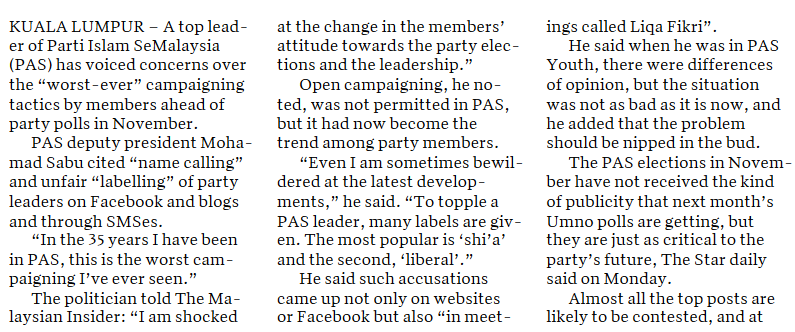
UMNO’s Party Elections- Another Rising Son?
 Partyforumseasia: Fierce competition inside a political party is the best time for observers and researchers to get a better picture of what is going on inside. The preparations for the internal elections which should have taken place already in 2012 but were postponed because of the May 2013 general election reveal a few things about UMNO after the extremely narrow victory which keeps it in power.
Partyforumseasia: Fierce competition inside a political party is the best time for observers and researchers to get a better picture of what is going on inside. The preparations for the internal elections which should have taken place already in 2012 but were postponed because of the May 2013 general election reveal a few things about UMNO after the extremely narrow victory which keeps it in power.
One interesting detail is that six candidates compete for three vice-presidential posts whereas PM Najib Razak und his deputy Muhyiddin Yassin remain unchallenged.
Among the six vice-presidential hopefuls one is more interesting than most of the others because he happens to be the son of former party president and long serving prime minister Mahathir Mohamad. This son, Mukhriz Mahathir, newly appointed chief minister of the federal state of Kedah immediately after the May election, is on the way up and would be a possible successor of PM Najib if elected as vice-president.
His father, Dr. Mahathir Mohamad, like many other elder statesmen, continues to comment on everything political in the country, but still wields more real influence than most of his peers. His direct support for his rising son and his vice-presidential ambitions may help a lot in this special area of political culture. (In most European countries this open support would be counterproductive).

Source: Straits Times (Singapore) today, 26-9-2013.
But there is a nice irony involved which seems to go unnoticed by father Mahathir when he says:
“Eventually people get bored of these outdated leaders who refuse to accept the reality.”
A European proverb is saying that you should not throw stones if you sit in a glass house…
Another interesting detail is the contest for chairing the women’s wing. Incumbent Shahrizat, who was involved in a massive corruption scandal under the headline “Cowgate” seems to enjoy endorsement for another term by PM Najib. But her challenger, senator Mazlah Maznan has good chances to replace Shahrizat exactly because of Cowgate.
UMNO is the biggest Malaysian party with 3.4 million members and the results of next month’s convention promise to be interesting!
Can UMNO Survive without Reform?
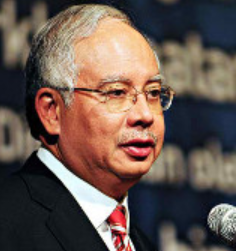 Partyforumseasia: UMNO’s narrow victory of the May election (if it was a true one anyway as the opposition still doubts) seemed to suggest that the party cannot continue business (!!!!) and politics as usual. Reform should be the order of the post election period if the steady increase of support for the opposition coalition was to be stopped. The party leadership, instead, seems to see the way out in playing the Malay card again and forget about reform.
Partyforumseasia: UMNO’s narrow victory of the May election (if it was a true one anyway as the opposition still doubts) seemed to suggest that the party cannot continue business (!!!!) and politics as usual. Reform should be the order of the post election period if the steady increase of support for the opposition coalition was to be stopped. The party leadership, instead, seems to see the way out in playing the Malay card again and forget about reform.
Asia Sentinel, 16 September 2013 (=link), sums it up in the formula:
Malaysia’s PM Capitulates to the Hardliners________________
“The Sept.14 announcement of an array of new economic benefits for ethnic Malays by Malaysian Prime Minister Najib Tun Razak represents the premier’s final post-election capitulation to radical Malay nationalists in the United Malays National Organization.
The new plan signifies a U-turn back to the New Economic Policy of affirmative action for ethnic Malays that was put in place in 1971 following disastrous 1969 race riots. Economists are largely in agreement that the policy has saddled the economy for three decades. Najib, an economist himself, has been attempting to undo the policy for three years through his 1Malaysia economic liberalization program. The new plan will play a major role in UMNO’s deliberations at its Oct. 5 annual general assembly and is key to Najib’s keeping his job, UMNO insiders say. If nothing else, it is recognition that reform inside the party is dead.”
Partyforumseasia is not surprised. PM Najib keeps his job but does not really look like a winner.
New Overview Paper: Party Financing in Southeast Asia
 Partyforumseasia’s editor, Wolfgang Sachsenröder, has presented a comparative paper on party finances at the ICIRD Conference (22-23 August 2013) at Chulalongkorn University Bangkok.
Partyforumseasia’s editor, Wolfgang Sachsenröder, has presented a comparative paper on party finances at the ICIRD Conference (22-23 August 2013) at Chulalongkorn University Bangkok.
Below you find an abstract.
If you are interested in the topic see the whole paper here:
Political Party Finances in Southeast Asia 1
Party Funding and Party Finances in Southeast Asia(Abstract)
by Wolfgang Sachsenröder, visiting fellow at the Institute of Southeast Asian Studies, Singapore, and editor of www.partyforumseasia.org
Southeast Asia, riding on a wave of economic and asset growth in the last few decades, has developed an exaggerated level of money politics and enrichment opportunities for all sorts of political entrepreneurs. The part of political parties in this game and the different methods of securing enough funding for the management of the party machineries and the increasingly costly election campaigns vary from country to country. But the basic pattern can be described as a skilful move to blur the distinction between big business, state funds, and political parties in order to control and manipulate cash flows as the main instrument for coming to power and secure it.
Based on traditional patron-client relationships and the remaining big income gap between mostly rural poor and limited mostly urban middle classes, “pluto-populism” and “pork-barrelling” have become prominent features of party politics everywhere. The overrepresentation of businessmen and bankers in parliaments and governments reflects the interdependence of party politics and business sectors, once dubbed as “incestuous relationship” by veteran opposition politician Lim Kit Siang in Malaysia. And the rising cost of being selected as a candidate or branch leader as well as the goodies to be showered on potential voter groups and party supporters are only a logical consequence of these developments which have hardly been affected by progress in democratic and institutional development. Frustration with the level of corruption is high in Southeast Asia, but the vicious cycle of political cash flows and party politics remains below the necessary domestic debate threshold to lead to radical reforms.
As the Malaysian election campaign for the 5 May 2013 “GE13” has shown, anti-corruption rhetoric strikes a strong chord with large sectors of the electorate, but the well-oiled machinery of the incumbent government coalition could not be defeated. In Indonesia, and certainly similarly in other parts of the region, the anti-corruption sentiments seem to be superseded by resignation. Since all parties are more or less involved, and people are so used to the daily petty corruption, the argument is losing appeal in campaigns, also because even the most corrupt parties use it strategically.
State funding for political parties, not to speak of the generous levels in many European countries (e.g. 154 million Euros in Germany in 2013) is widely unknown in Southeast Asia. An exception is Thailand, which has introduced – after long debates since the mid-1990s – a quite generous party funding system.
Membership fees are more or less symbolic in the region (e.g.Democrat Party, Thailand 20,- THB, PAP, Singapore S$ 18 / year) if collected at all. These contributions to the party funding are practically negligible and certainly no serious part of the parties’ income.
The elections in Malaysia (May 2013) and Cambodia (July 2013) suggest that the electorates are increasingly aware and sick of political corruption and vote for the opposition which they expect to be cleaner.
Will Political Corruption in Southeast Asia Come to an End?
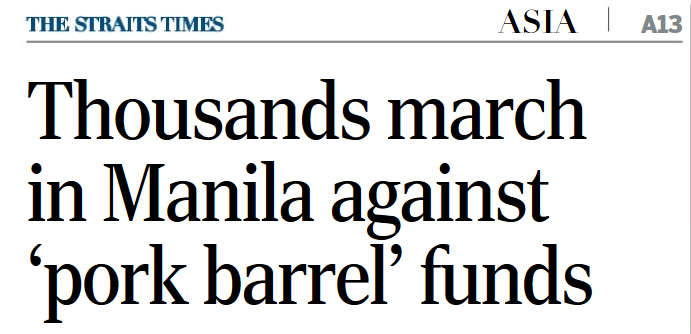 Partyforumseasia: The funding of party activities and election campaigns is closely related to corruption in many countries in the region. This is why many businessmen are in politics or close to politicians and vice versa. But the enormous cash flows in the political arena are more and more tarnishing their image and creating a public outcry and demonstrations. Demonstrations alone would not bother the beneficiaries of this “incestuous relationship” too much, if there were not a backlash against corrupt parties in elections. Malaysia’s GE 13 in May and Cambodia’s July election ended as a very close shave for the ruling parties perceived as very corrupt.
Partyforumseasia: The funding of party activities and election campaigns is closely related to corruption in many countries in the region. This is why many businessmen are in politics or close to politicians and vice versa. But the enormous cash flows in the political arena are more and more tarnishing their image and creating a public outcry and demonstrations. Demonstrations alone would not bother the beneficiaries of this “incestuous relationship” too much, if there were not a backlash against corrupt parties in elections. Malaysia’s GE 13 in May and Cambodia’s July election ended as a very close shave for the ruling parties perceived as very corrupt.
These days it is in the Philippines that citizens demand an end to the infamous pork projects and President Aquino will have to show some results in the second half of his term.
Partiforumseasia will soon publish a comparative assessment of party financing and corruption in Southeastasia which was first presented in the ICIRD Conference in Bangkok last week.

Source: Straits Times, Singapore, 27 August 2013
Where is the Ethical High Ground in Malaysia?
Partyforumseasia: There are probably few lawmakers world-wide who live on their official income alone and certainly even fewer who seriously bare their financial situation to the voters. The common tricks are sufficiently known. If you have to declare the financial status of spouse and children as well, proxies are easily found.
As laudable as the newest move towards transparent pockets by 30 Penang state assemblymen may be, doubts are allowed that this move can really put pressure on the financial networks of the Barisan Nasional elite. Though a lot of evidence of corrupt practices has been published so far and the image is sufficiently tarnished, full transparency will be too nice to be true.

Source: Straits Times, Singapore, August 13, 2013
Unity Government in Malaysia: Extended Wayang Kulit?

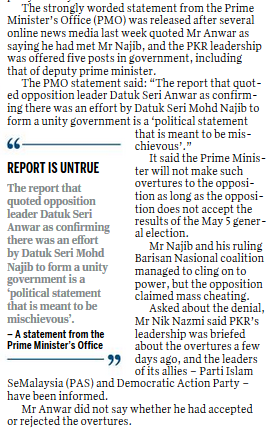 Partyforumseasia: Compromising after the bitterness of the GE 13 election last May cannot be easy for opposition leader Anwar nor for PM Najib, the latter even stabbed in the back by UMNO godfather Mahathir. And before a solution has been found it would not be clever to leak details one by one. A power-sharing solution won’t be easy to swallow for party members on both sides but would probably be conducive for the social cohesion of Malaysia. UMNO would be well advised to swallow its pride since it has to change dramatically if it wants to survive. A majority of the voters has given them a clear signal.
Partyforumseasia: Compromising after the bitterness of the GE 13 election last May cannot be easy for opposition leader Anwar nor for PM Najib, the latter even stabbed in the back by UMNO godfather Mahathir. And before a solution has been found it would not be clever to leak details one by one. A power-sharing solution won’t be easy to swallow for party members on both sides but would probably be conducive for the social cohesion of Malaysia. UMNO would be well advised to swallow its pride since it has to change dramatically if it wants to survive. A majority of the voters has given them a clear signal.
Source: Straits Times 17.08.2013
Malaysia: DAP Can’t Win Against RoS
 Partyforumseasia: The GE 13 election results have been a big shot in the arm for the DAP. But ignoring the Registry of Societies’ verdict on the internal party elections could not be a viable policy, as different as the internal perception may have been. The danger of being deregistered seems to have changed the minds of the leadership.
Partyforumseasia: The GE 13 election results have been a big shot in the arm for the DAP. But ignoring the Registry of Societies’ verdict on the internal party elections could not be a viable policy, as different as the internal perception may have been. The danger of being deregistered seems to have changed the minds of the leadership.
As in most similar cases the complaint to the RoS came from disgruntled members of the party. Internal party elections regularly highlight and reveal the ambitions of members and candidates which, more often than not, do not overlap with their image and popularity. Standing for elections is a highly emotional risk and affects the sensitive egos of party activists.
Source / Link: Straits Times 16.08.2013
Malaysia: Compromise between BN and PR?
Partyforumseasia:Political contestation is as normal in democratic multi-party systems as eventual compromise. National unity governments have helped to reconcile the competitors after bitter election campaigns. Channels of dialogue should be the very least that voters can expect from politicians who declare themselves as patriots and want to serve the country. This is why many fingers should be crossed when signals of dialogue between PM Najib and opposition leader Anwar ( or PM Hun Sen and opposition leader Sam Rainsy in the Cambodian case) become visible.
See (link) Asia Sentinel 12 August 2013

Cambodia: A Surprise in the Pipeline???
Partyforumseasia does not like fortune-telling but the political timeline for the last few weeks looks a bit like indicating a surprise solution:
Mid July
Royal Pardon for Sam Rainsy at the request of PM Hun Sen “in a spirit of reconciliation”
19th July
Triumphant return of Sam Rainsy after four years in exile to avoid imprisonment after a dubious sentence he calls politically motivated
28th July
Election results with heavy losses for the ruling CPP and significant gains for the opposition under Sam Rainsy: 68 seats CPP – 55 seats CNRP
29th July
Press conference of Sam Rainsy: “We are asking for this (investigation into alleged massive irregularities) not to bargain for positions in the government”
(Source: Straits times Indochina Bureau Chief Nirmal Gosh, who continues: “He (Sam Rainsy) said it was “premature” to talk about power sharing in the new government.”)
31st July
PM Hun Sen: “The Cambodian People’s Party has an open heart to talk to the CNRP” Background: The CPP has not enough seats to convene parliament and needs the CNRP’s cooperation…
Soon???
– A grand coalition between CPP and CNRP in the national interest of the country?
– Sam Rainsy finance minister? or better Foreign Minister?
Partyforumseasia: Probably not a bad solution for Cambodia!
Pardoned Challenger Returns for Cambodia Elections on 19 July
 Partyforumseasia: The Cambodian election campaign is getting a bit more interesting. Two weeks before election day on 28 July, King Norodom Sihamoni has pardoned opposition leader Sam Rainsy
Partyforumseasia: The Cambodian election campaign is getting a bit more interesting. Two weeks before election day on 28 July, King Norodom Sihamoni has pardoned opposition leader Sam Rainsy  who will return from exile in France to Phnom Penh on the 19th. The pardon comes at the request of Prime Minister Hun Sen “in a spirit of reconciliation”. Sam Rainsy is not too optimistic on his Facebook page that his return can really challenge the expected CPP victory: “In the short time that has been made available, I hope to be able to meet my fellow countrymen to discuss their concerns and to hold discussions with leaders of all political parties on the best way foward for Cambodia.” He knows quite well that PM Hun Sen would not take the risk of losing just for the spirit of reconciliation. Nevertheless, some gains for the united opposition which runs as Cambodia National Rescue Party can be expected – an interesting development after the Malaysian GE in May and the Singaporean by-election in March this year.
who will return from exile in France to Phnom Penh on the 19th. The pardon comes at the request of Prime Minister Hun Sen “in a spirit of reconciliation”. Sam Rainsy is not too optimistic on his Facebook page that his return can really challenge the expected CPP victory: “In the short time that has been made available, I hope to be able to meet my fellow countrymen to discuss their concerns and to hold discussions with leaders of all political parties on the best way foward for Cambodia.” He knows quite well that PM Hun Sen would not take the risk of losing just for the spirit of reconciliation. Nevertheless, some gains for the united opposition which runs as Cambodia National Rescue Party can be expected – an interesting development after the Malaysian GE in May and the Singaporean by-election in March this year.
But there is a high probability that PM Hun Sen  will keep smiling after the election.
will keep smiling after the election.
Cambodia: Sam Rainsy Back Home to Challenge Hun Sen?
 Partyforumseasia: Yesterday, 7 July 2013, Sam Rainsy has announced his return to Cambodia. See his Facebook page.
Partyforumseasia: Yesterday, 7 July 2013, Sam Rainsy has announced his return to Cambodia. See his Facebook page.
The country will be going to the polls on 28 July and – as usual – Prime Minister Hun Sen’s Cambodian People’s Party (CPP) is expected to win big. The long term ruling party is well prepared with a total penetration of the administration and its control of media and economy. Could opposition leader Sam Rainsy be Hun Sen’s nemesis this time? Rainsy lives in exile since 2009 to avoid imprisonment up to eleven years after a dubious conviction, but the internet allows him constant contact with his party. And this time the opposition has managed to unite in the Cambodian National Rescue Party (CNRP).
Sam Rainsy is the only Cambodian politician with the format and popularity to challenge PM Hun Sen, whose official title is as impressive as his long term grip on power: “The Noble, Supreme, Great, and All Powerful Commander-in-Chief, Prime Minister Hun Sen”. But many Cambodians resent the cronyism and corruption of the CPP regime and the evident nepotism in the Prime Minister’s family.
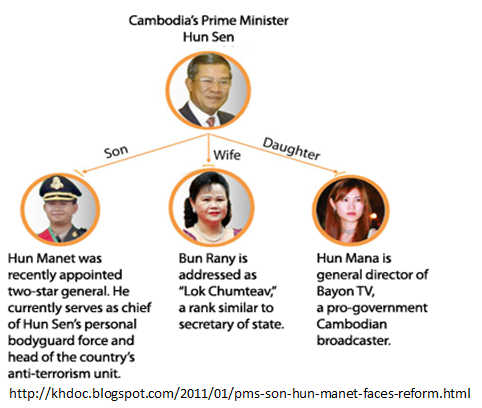
Indonesia’s PKS: No Party of Angels…

Partyforumseasia: Busyro Muqoddas, chairman of the Anti-Corruption Commission (KPK) of Indonesia, has called the Prosperous Justice Party PKS “not a party of angels”. The latest series of scandals has been highlighted by John Mcbeth in the Straits Times of July 2d 2013. Here is a part of his report: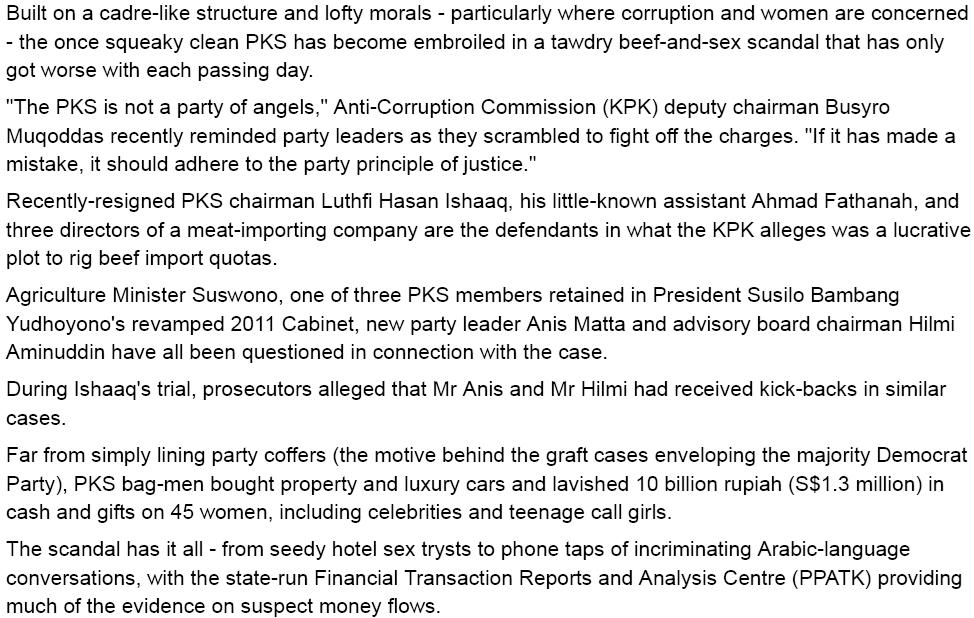
Apart from doubts about the complete innocence of angels – even these famous ones by Raffael have some mischevious twinkle in the corner of their eyes – Partyforumseasia does not know any party of angels in this world. The question is whether Indonesians are so used to corrupt politics and politicians that they don’t expect angel parties or somewhat cleaner than the others-parties any more.
Another interesting observation of Mcbeth is the split between more religious and ideological PKS members and the more secular pragmatists who adapt to a more affluent lifestyle and don’t mind to make some bucks in the shadow. Only the next elections will show whether voters seriously mind corruption in a major Islamist party or take political corruption for granted.
Respect: UMNO’s Internal Election Reform
 Partyforumseasia: UMNO is getting serious in renewing the less than perfect internal election procedures. After 26 years of pre-democratically choosing the party president and his deputy without voting and by acclamation, this method described and ridiculed in Asterix’s old Gaul, comes to an end. In the upcoming party elections, probably between mid July and mid August, UMNO will come back to a proper election of the two top leaders. It will remain to be seen whether the election will be competitive or not, and if yes, who will have the courage to openly challenge Prime Minister Najib.
Partyforumseasia: UMNO is getting serious in renewing the less than perfect internal election procedures. After 26 years of pre-democratically choosing the party president and his deputy without voting and by acclamation, this method described and ridiculed in Asterix’s old Gaul, comes to an end. In the upcoming party elections, probably between mid July and mid August, UMNO will come back to a proper election of the two top leaders. It will remain to be seen whether the election will be competitive or not, and if yes, who will have the courage to openly challenge Prime Minister Najib.
Whether he will like it or not, the voting might show his support level in the party, at least by abstentions, spoiled or no votes.
The other part of the reform will expand the number of delegates with voting rights from 2,500 to 146,500, probably enough to make vote buying too expensive even for the richest UMNO members with ambitions for local leadership posts.
See also the short overview on the reform compiled by Singapore’s Straits Times of 29 June:
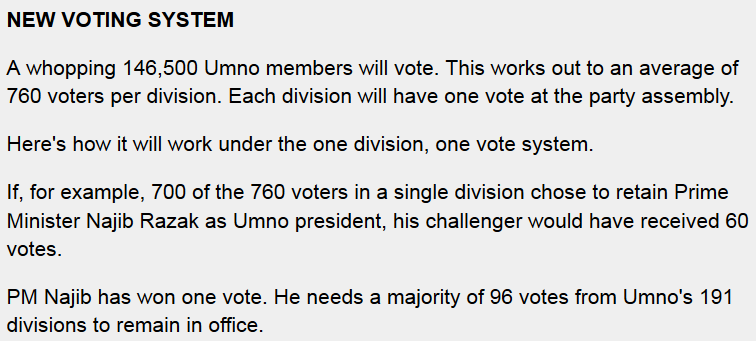
Virtual Politics in Southeast Asia: Leaders Must Blog
Partyforumseasia: Obviously many voters like to feel close to their leaders, and subscribing to their blogs seems to provide this feeling. This, in turn, obliges the leaders to set up their own websites. Singapore’s Straits Times, 24 June, provides an overview, here is a selection for Southeast Asia, that is the rulers. The opposition figures may be interesting as well and a comparison of the number of followers…
Malaysia: Competition for UMNO’s Top Job?
 Partyforumseasia: This is “Vitalstatistix”, chief of Asterix’s and Obelix’s village in old Gaul. He is waiting on his shield to be uplifted and reconfirmed as chief…
Partyforumseasia: This is “Vitalstatistix”, chief of Asterix’s and Obelix’s village in old Gaul. He is waiting on his shield to be uplifted and reconfirmed as chief…
The extended UMNO leadership seems to be divided over how party chairman Prime Minister Najib Razak should be confirmed this time: uncontested like all UMNO top leaders in the last 26 years…or elected. Competitive party elections can be divisive, sure, and each contender has his or her own enemies and supporters. But such is party politics and competition is normal.
For the next party election later this year, PM Najib seems to have already a potential challenger, UMNO senior statesman Tengku Razaleigh Hamzah, once called ” the best Prime Minister Malaysia never had”. Because (or despite his age, born in 1937) he might be the right leader to reconcile the UMNO factions and maybe even UMNO and PAS…


Another interesting result of the new competitiveness in Malaysia’s politics are the attempts of UMNO to reduce its internal money politics by enlarging the voter base for the party elections. Increasing the number of members with voting right from 2,500 to 140,000 may indeed make vote buying too expensive and unaffordable even for the richest leaders. But the patronage and pork barrel system will be difficult to eradicate.
Vietnam: First “Lack of Confidence Vote”?
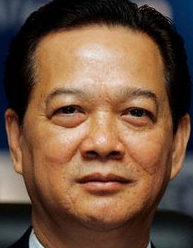 Partyforumseasia: Prime Minister Nguyen Tan Dung and his government risked a confidence vote last Monday, 10 May, for the first time in their regime’s history. Given the 90% majority of the Communist Party in Vietnam’s Parliament and the remaining 10% not really antagonistic opposition, the risk was not life threatening.
Partyforumseasia: Prime Minister Nguyen Tan Dung and his government risked a confidence vote last Monday, 10 May, for the first time in their regime’s history. Given the 90% majority of the Communist Party in Vietnam’s Parliament and the remaining 10% not really antagonistic opposition, the risk was not life threatening.
But more than 30% “low confidence”votes may
be signaling Dung’s fading popularity for a lackluster performance widely blamed for the slow economy on one side. On the other hand they will give hope to the population that their unhappiness with party and government will not go unnoticed by them any more. The keen interest in specially televised parliamentary debates since a couple of years shows that citizens are not indefinitely prepared to suffer in silence. But will the party be capable of opening up? Will rivalries inside the ‘nomenclatura’ allow for genuine party reform? See more details in today’s (link:) New York Times article.
Myanmar: President Aung San Suu Kyi?
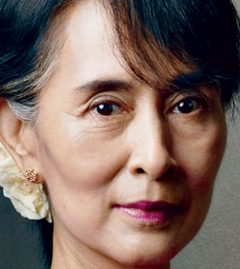 Partyforumseasia: The long way from prison and house arrest to the presidential palace seems to open up for democracy icon Aung San Suu Kyi, “The Lady”. At the same time, her leadership of the National League for Democracy (NLD) comes under criticism by former supporters. “Foreign Policy” in its May/June edition (pp 32-34) publishes an article by Min Zin with the telling title “You Can’t Go Home Again”. The author, a former student activist in Burma, is now a journalist based in California. His feelings are nostalgic and disappointed at the same time when he comes back to a changed country: “And the more I spoke with Burma’s intellectuals, with the dissidents who had struggled alongside me so many years ago, what I heard was not simply joy about a country finally opening up to the world (…) but also the striking disappointment, in particular with our beloved Aung San Suu Kyi. (…) Today (…) even among those who love and respect Aung San Suu Kyi, her sainthood appears tarnished by an increasing aloofness and distance from the rest of the political opposition. Her leadership style makes her unapproachable. In the party congress of her National League for Democracy, held in March – the first in more than 20 years – she alone handpicked her central executive committee. But even worse than this worrying authoritarian streak, she seems willing, even eager, to please the former generals at the expense of moral and political principles. One of the most striking examples is her silence on the racist discrimination and violence against the Rohingya Muslim minority…”.
Partyforumseasia: The long way from prison and house arrest to the presidential palace seems to open up for democracy icon Aung San Suu Kyi, “The Lady”. At the same time, her leadership of the National League for Democracy (NLD) comes under criticism by former supporters. “Foreign Policy” in its May/June edition (pp 32-34) publishes an article by Min Zin with the telling title “You Can’t Go Home Again”. The author, a former student activist in Burma, is now a journalist based in California. His feelings are nostalgic and disappointed at the same time when he comes back to a changed country: “And the more I spoke with Burma’s intellectuals, with the dissidents who had struggled alongside me so many years ago, what I heard was not simply joy about a country finally opening up to the world (…) but also the striking disappointment, in particular with our beloved Aung San Suu Kyi. (…) Today (…) even among those who love and respect Aung San Suu Kyi, her sainthood appears tarnished by an increasing aloofness and distance from the rest of the political opposition. Her leadership style makes her unapproachable. In the party congress of her National League for Democracy, held in March – the first in more than 20 years – she alone handpicked her central executive committee. But even worse than this worrying authoritarian streak, she seems willing, even eager, to please the former generals at the expense of moral and political principles. One of the most striking examples is her silence on the racist discrimination and violence against the Rohingya Muslim minority…”.
Exile, that shows history everywhere, makes it hard to leave the difficult past behind and see the new reality with open eyes. Many exiles remain bitter and may (often secretly) expect a compensation for their sufferings, one that Aung San Suu Kyi seems to be getting now.
But Min Zin’s question remains valid: What type of party will the NLD be in the next few years and how will The Lady and her handpicked executive committee lead it? The transition from decades as suppressed opposition to ruling a difficult country will not be easy.


